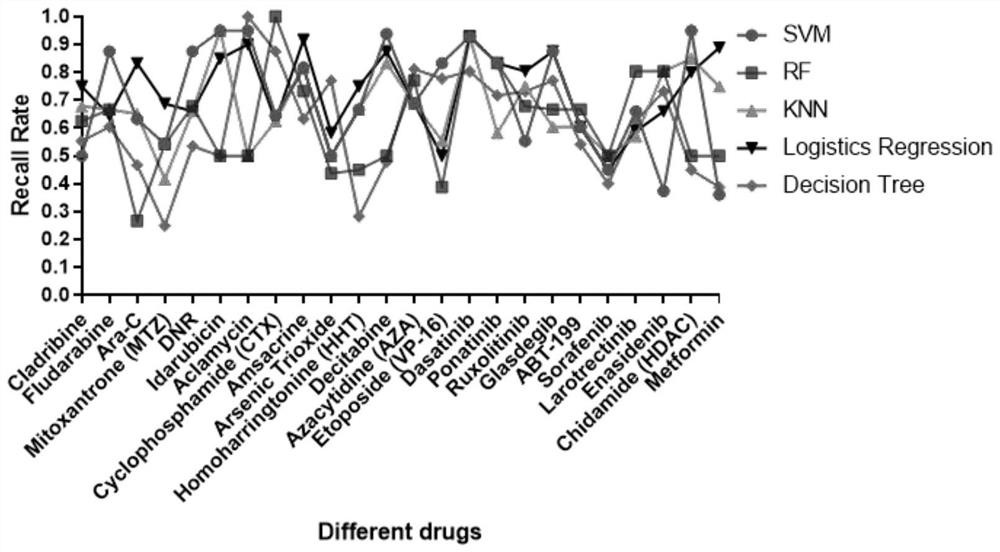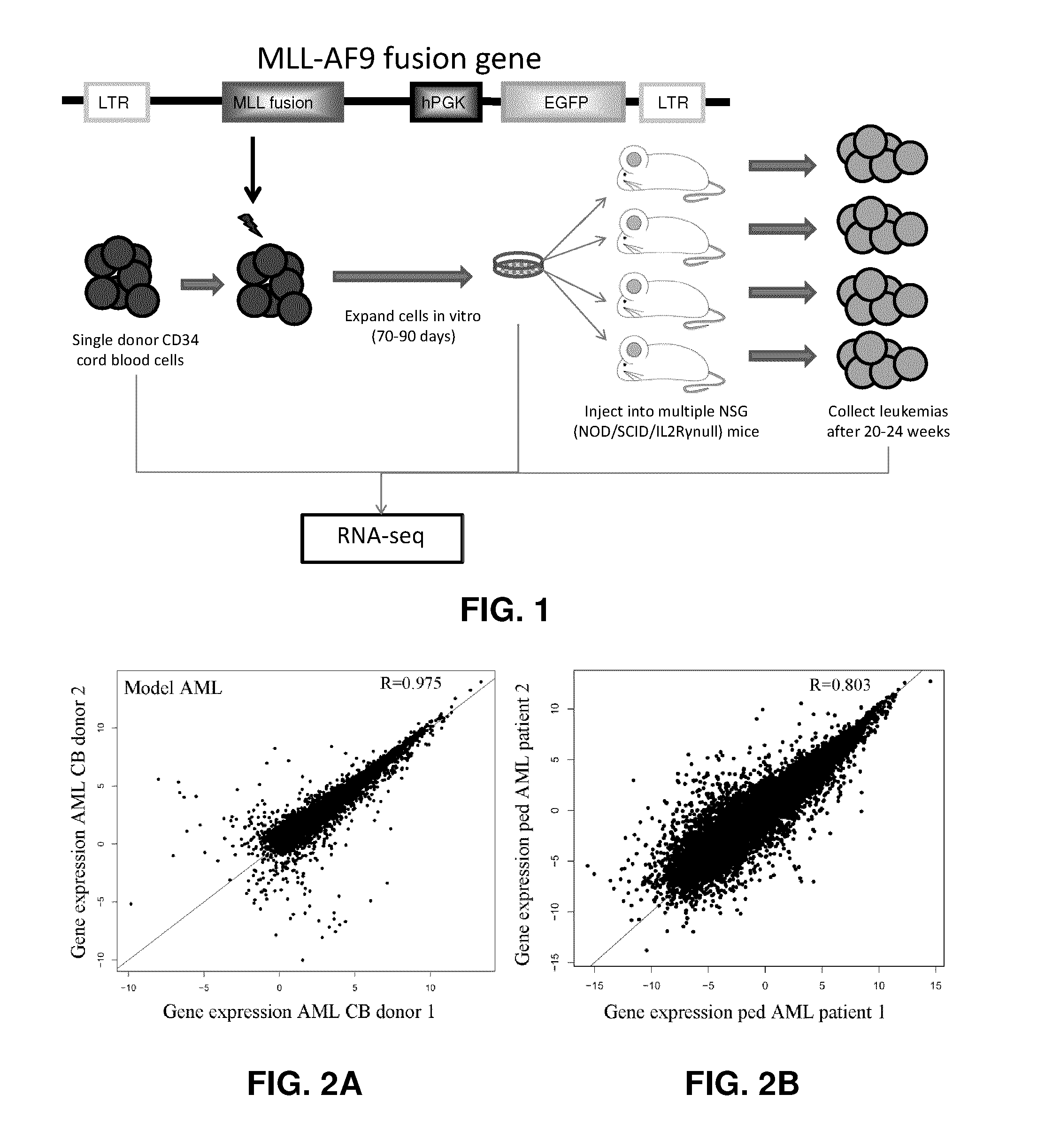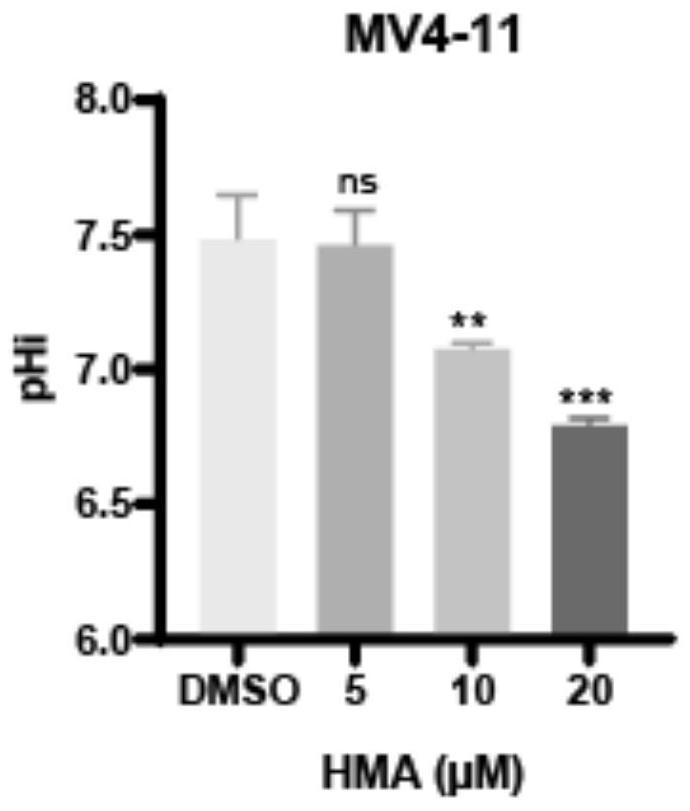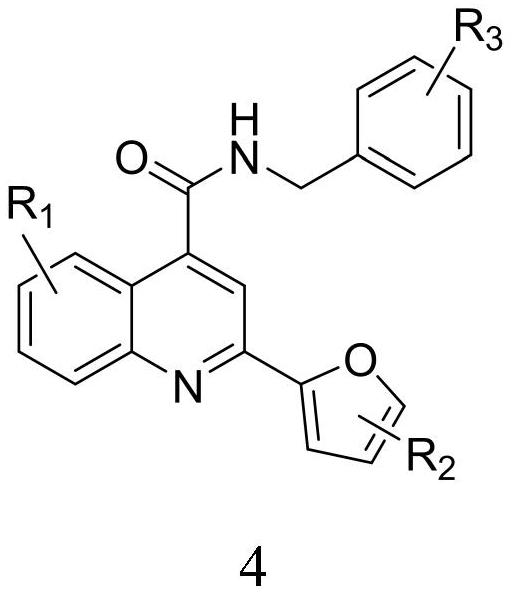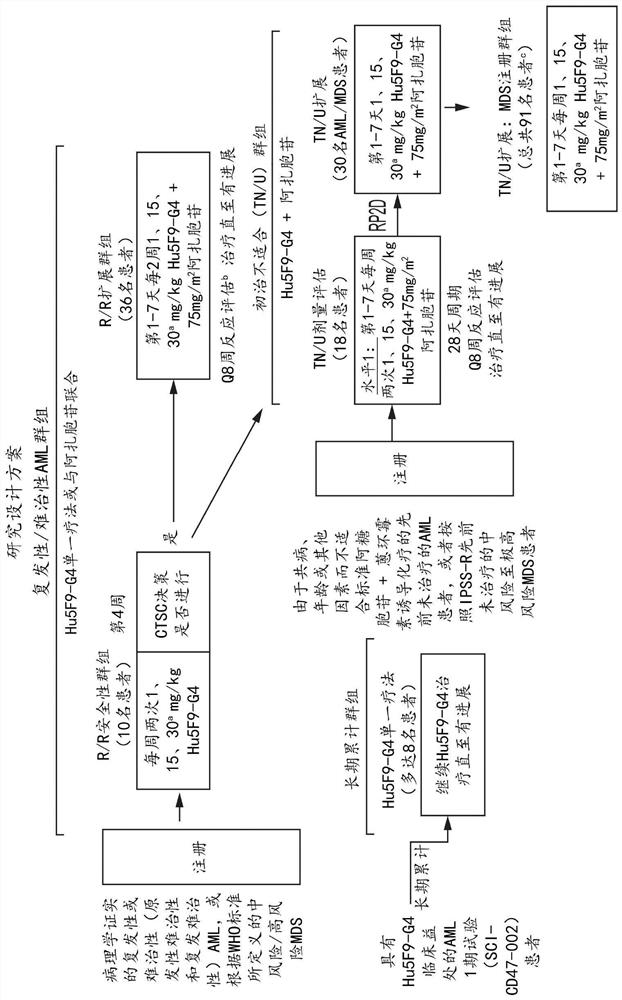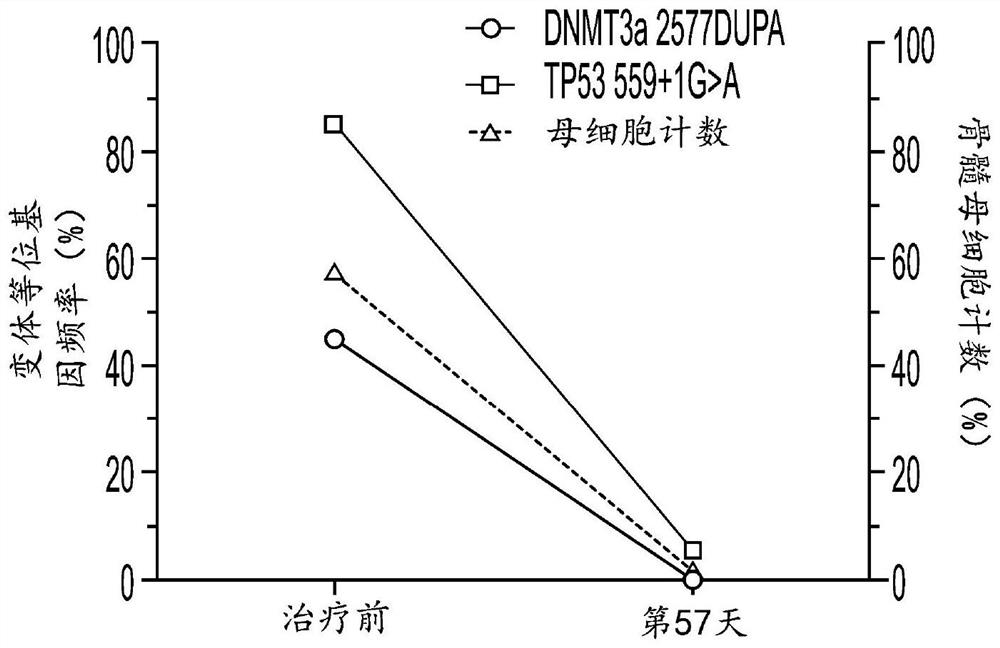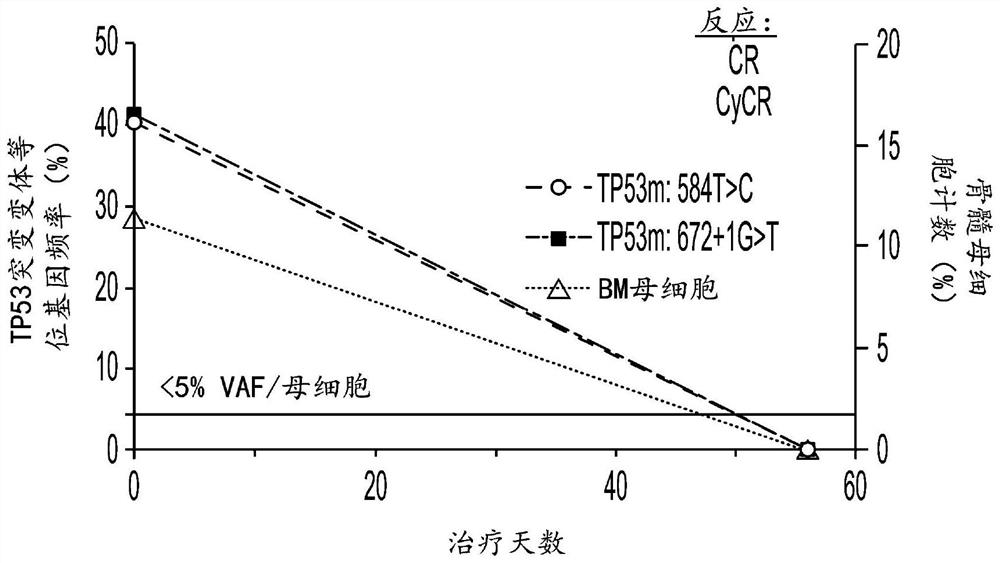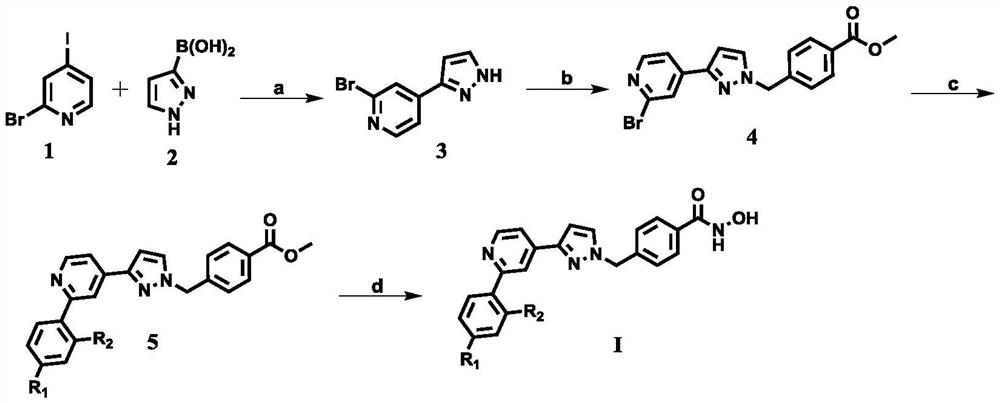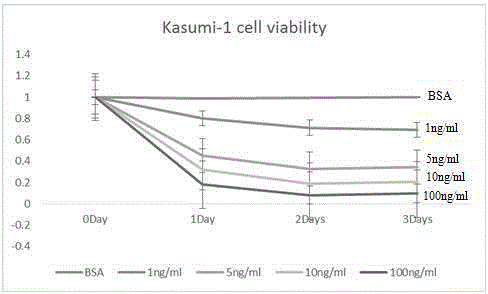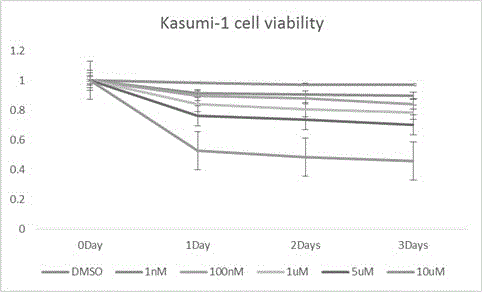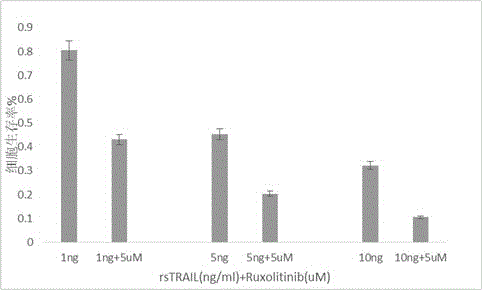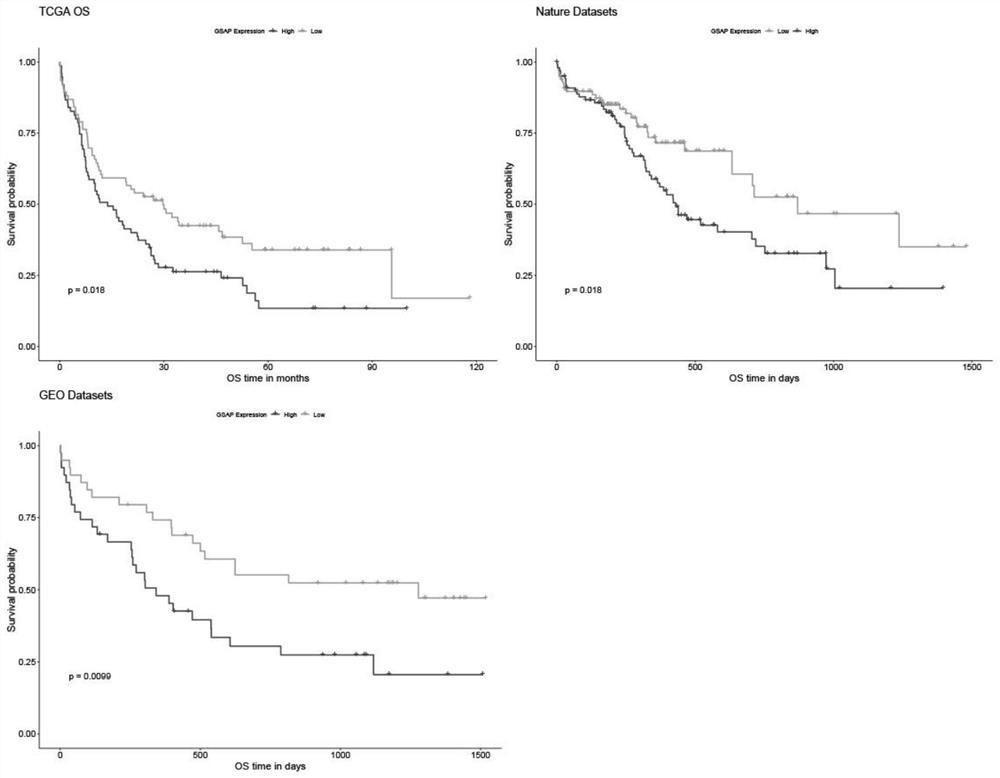Patents
Literature
Hiro is an intelligent assistant for R&D personnel, combined with Patent DNA, to facilitate innovative research.
125 results about "Acute myeloid leukemias" patented technology
Efficacy Topic
Property
Owner
Technical Advancement
Application Domain
Technology Topic
Technology Field Word
Patent Country/Region
Patent Type
Patent Status
Application Year
Inventor
Classification of Acute Myeloid Leukemia
InactiveUS20090118132A1Rapid and cost-effective and reliable approachMicrobiological testing/measurementLibrary screeningMyeloid leukemiaMedicine
The present invention relates to rapid and reliable approaches to leukemia prognostication. In addition to methods, the invention also provides related kits and systems.
Owner:ROCHE MOLECULAR SYST INC +1
Relevant gene combination, primer, probe and application used for detecting chemotherapeutic effect on acute myelogenous leukemia
InactiveCN101851683ASmall toxicityAdjusting the dose of chemotherapyMicrobiological testing/measurementFermentationSide effectEnzyme Gene
The invention discloses a relevant gene combination, a primer, a probe and application used for detecting a chemotherapeutic effect on acute myelogenous leukemia. The gene combination comprises four gene combinations closely relevant to pharmacotherapy of the acute myelogenous leukemia: medicament metabolism phase I enzyme gene CYP3A5, medicament metabolism phase II enzyme genes NAT2 and GSTO2, and medicament transport protein gene OATP1B1; and the gene combination comprises the following SNP loci: the locus rs776746 of the gene CYP3A5, the locus rs1799931 of the gene NAT2, the locus rs156697 of the gene GSTO2, and the locus rs4149056 of the gene OATP1B1. A method is performed by hybridizing a specific primer and probes which are subjected to fluorescence marks of different colors with target gene fragments in a nucleic acid sample after PCR amplification. The treatment effect of a leukemia medicament is detected and analyzed by mononucleotide extension technology so as to direct clinical medicament application, reduce a toxic or side effect of the medicament application for a patient, and increase a curative effect.
Owner:UNION STEMCELL & GENE ENG +1
Interfusion protein between diphtheria toxin and GM CSF mutant, coded gene and application
This invention discloses fusion protein of diphtherin and GM-CSF mutant, its coding gene, and its application. The fusion protein is selected from: (a) the protein shown in SEQ ID No.2; (b) the protein derived from SEQ ID No.2 by substituting, deleting and / or adding one or more amino acid residues, which can kill acute myeloid leukemia cells. The fusion protein can kill target cells, and has a high expression level.
Owner:STATION OF VIRUS PREVENTION & CONTROL CHINA DISEASES PREVENTION & CONTROL CENT
Application of three microRNAs in diagnosis and treatment of human acute myeloid leukemia
InactiveCN101886115AGenetic material ingredientsMicrobiological testing/measurementSecondary Acute Myeloid LeukemiaOncology
The invention relates to an application of three miRNAs, i.e. miR-451, miR-29a and miR-142-3p in diagnosis and treatment of acute myeloid leukemia (AML).
Owner:THE INST OF BASIC MEDICAL SCI OF CHINESE ACAD OF MEDICAL SCI
Method for screening prognostic markers of DNA methylation in acute myeloid leukemia
ActiveCN109852672AImproved prognosisIncrease conversion rateMicrobiological testing/measurementCpG sitePrognosis biomarker
The invention discloses a method for screening prognostic markers of DNA methylation in acute myeloid leukemia. The method includes the following steps: (1) sample and clinical data collection; (2) sample preparation; (3) genomic DNA extration; (4) whole-genome CpG site methylation capture sequencing; and (5)methylation sequencing data analysis and marker screening. The method uses the whole-genome CpG site methylation capture sequencing technology to detect DNA methylation in acute myeloid leukemia and perform prognosis analysis, and screens genetic markers which are regulated by DNA methylation and has prognostic significance through information of integrative genetics and epigenetics to guide accurate diagnosis and treatment of AML, thereby improving the curative effect and improving the prognosis of patients.
Owner:深圳豪石生物科技有限公司
Anti-CD38 antibodies for treatment of acute myeloid leukemia
ActiveUS10793630B2Organic active ingredientsImmunoglobulins against cell receptors/antigens/surface-determinantsAntiendomysial antibodiesAcute myeloid leukemias
The present invention relates to methods of treatment of acute myeloid leukemia with anti-CD38 antibodies.
Owner:JANSSEN BIOTECH INC
Novel application of Apatinib for preparing medicine for treating acute myelogenous leukemia
InactiveCN110292578AGood biocompatibilityImprove targetingOrganic active ingredientsAntineoplastic agentsSide effectPhosphorylation
The invention relates to novel application of Apatinib or pharmaceutically acceptable salts, ester and solvent compounds thereof for preparing a medicine for treating acute myelogenous leukemia. The Apatinib restrains acute myelogenous leukemia cell amplification and induces apoptosis of cells by activating the mitochondrion-mediated endogenesis apoptosis way and lowering the VEGFR2 phosphorylation level and the PLCgama / PKC / S6 signal channel of the downstream thereof, and finally the effect of treating acute myelogenous leukemia is obtained; Apatinib or pharmaceutically acceptable salts, esterand solvent compounds thereof have no toxic or side effect on normal marrow mononuclear cells, the safety is good, the theoretical basis is provided for researching the treatment strategy for acute myelogenous leukemia, and an embedded point is supplied to preparation of the medicine for treating the acute myelogenous leukemia.
Owner:THE FIRST AFFILIATED HOSPITAL OF XIAMEN UNIV +1
Drug-loaded polymer vesicle with asymmetric membrane structure, preparation method and application in preparation of drug for treating acute myeloid leukemia
ActiveCN112076159AGuaranteed long cycleGood biocompatibilityOrganic active ingredientsPharmaceutical non-active ingredientsTumor cellsBiophysics
The invention discloses a drug-loaded polymer vesicle with an asymmetric membrane structure, a preparation method and application in preparation of a drug for treating acute myeloid leukemia. An amphiphilic triblock polymer with polyaspartic acid PAsp, a targeted amphiphilic block polymer and a small molecule drug are assembled together to prepare the targeted small molecule drug-loaded polymer vesicle with the asymmetric membrane structure. The drug-loaded polymer vesicle disclosed by the invention has many unique advantages, including small size, simple and controllable preparation, reversible crosslinking, in-vivo stability, targeted delivery, high intracellular drug enrichment concentration, sensitive reduction, efficient killing of tumor cells, significant tumor growth inhibition effect and the like, and especially the drug-loaded vesicle disclosed by the invention has effective inhibition on both acute myeloid leukemia cell lines and patient cells. Therefore, the polymer vesicleis expected to become a simple and multifunctional nano platform for efficient and specific targeted delivery of drugs to tumor cells.
Owner:SUZHOU UNIV
Diterpenoid compounds, and preparation method and application thereof
InactiveCN105175252AEnhanced inhibitory effectHigh anticancer activityAntineoplastic agentsCarboxylic compound separation/purificationChromatographic separationStructural formula
The invention discloses diterpenoid compounds, and a preparation method and application thereof. The diterpenoid compounds are prepared by the following steps: by using Aralia melanocarpa root as a raw material, carrying out extract leaching, organic solvent extraction, silica gel column chromatography and high pressure liquid chromatography separation. The molecular formula of the compounds is C20H28O2 which is named ent-pimar-6,8(14),15-trien-19-oic acid disclosed as the structural formula in the specification. The preparation method comprises the following steps: by using the Aralia melanocarpa root as the raw material, carrying out extract leaching, organic solvent extraction, silica gel column chromatography and high pressure liquid chromatography separation. The invention also discloses application of the diterpenoid compounds in preparing drugs for preventing and / or treating tumor and in preparing drugs for preventing and / or treating human lung adenocarcinoma, human prostatic cancer or human acute medullary system leukaemia. The diterpenoid compounds have obvious inhibiting actions when being applied to drugs for human lung adenocarcinoma, human prostatic cancer or human acute medullary system leukaemia, which indicates that the diterpenoid compounds have favorable anticancer activity and can be used as an anticancer active component or lead compound.
Owner:YUNNAN MINZU UNIV
Application of miRNA to diagnosis and treatment of acute myelogenous leukemia
ActiveCN105154541AOrganic active ingredientsGenetic material ingredientsChronic myelogenous leukemiaCancer research
The invention discloses application of miRNA to diagnosis and treatment of acute myelogenous leukemia. The miRNA is miRNA-1277. Whether a patient has the acute myelogenous leukemia or not can be diagnosed through detecting the expression level of the miRNA-1277. Experiments prove that the expression level of the miRNA-1277 in the patient with the acute myelogenous leukemia is obviously lower than that of healthy people. On the basis, the miRNA-1277 can also be used for preparing medicine for treating the acute myelogenous leukemia. The sensitivity and the specificity of the diagnosis of the acute myelogenous leukemia are greatly improved; meanwhile, a new target point is provided for gene treatment of the acute myelogenous leukemia.
Owner:QINGDAO MEDINTELL BIOMEDICAL CO LTD
Markers of acute myeloid leukemia stem cells
Markers of acute myeloid leukemia stem cells (AMLSC) are identified. The markers are differentially expressed in comparison with normal counterpart cells, and are useful as diagnostic and therapeutic targets.
Owner:THE BOARD OF TRUSTEES OF THE LELAND STANFORD JUNIOR UNIV
N-subsituted aromatic ring-2-amino pyrimidine compound and applications
ActiveCN110872277AHas Chk1 inhibitory activityGood treatment effectOrganic chemistryAntineoplastic agentsEfficacyTherapeutic effect
The invention provides an N-subsituted aromatic ring-2-amino pyrimidine compound and applications. The compound includes an optical isomer or a pharmaceutically acceptable salt. A test proves that theN-subsituted aromatic ring-2-amino pyrimidine having a novel framework has excellent CHK1 protein inhibition activity and has significant in-vitro proliferation inhibition effect on MV4-11, Z138 andthe like blood tumor cell strains; meanwhile, the compound also has excellent oral delivery effect. Further in-vivo efficacy test proves that the compound has great treatment effect on human acute myelogenous leukemia MV-4-11 Ba1b / c mouse transplantation tumor and has great treatment effect on tumor. The compound is reasonable in synthesis route design, is prepared from feasible raw materials andgentle reaction conditions, is high in yield in every step and is simple in preparation operation, and is suitable in industrial production. The N-subsituted aromatic ring-2-amino pyrimidine compoundhas a structural general formula as the specification.
Owner:ZHEJIANG UNIV +1
Acute myelogenous leukemia miRNA marker
ActiveCN105063052AGenetic material ingredientsMicrobiological testing/measurementChronic myelogenous leukemiaCancer research
The invention discloses a miRNA marker which is miRNA-1262. Whether a patient suffers from acute myelogenous leukemia or not can be diagnosed by detecting the expression level of the miRNA-1262. As is proved by experiment, an acute myelogenous leukemia patient and a healthy person can be effectively distinguished through the miRNA-1262. On the basis, the miRNA-1262 can also be used for preparing acute myelogenous leukemia treatment drugs. The miRNA-1262 improves the sensitivity and specificity of acute myelogenous leukemia diagnosis greatly and provides a new drug target for gene therapy of acute myelogenous leukemia.
Owner:QINGDAO MEDINTELL BIOMEDICAL CO LTD
Application of LncRNA EPB41L4A-AS1 as marker for diagnosing and treating acute myelogenous leukemia
InactiveCN111454948AEnhanced inhibitory effectEasy to measureOrganic active ingredientsMicrobiological testing/measurementAcute myeloid leukemiasLeukemia markers
The invention discloses a long non-coding RNA for treating acute myelogenous leukemia. Particularly, the long non-coding RNA is LncRNA EPB41L4A-AS1. The invention discloses an application of the LncRNA EPB41L4A-AS1 to preparation of a product for treating the acute myelogenous leukemia. The invention simultaneously discloses a pharmaceutical composition for treating the acute myelogenous leukemiaand a kit for evaluating the LncRNA EPB41L4A-AS1. The pharmaceutical composition disclosed by the invention has a relatively good inhibitory effect on the acute myelogenous leukemia, and has importantreference significance and practical significance in treatment of the acute myelogenous leukemia. The kit disclosed by the invention can serve as one of methods for evaluating the expression level ofthe LncRNA EPB41L4A-AS1 and has relatively good measurement and guide effects on the LncRNA EPB41L4A-AS1 when used as the pharmaceutical composition.
Owner:长沙医路相守生物科技有限公司
COMBINATION TREATMENT OF ACUTE MYELOID LEUKEMIA and MYELODYSPLASTIC SYNDROME
ActiveUS20160095863A1Improve toleranceSlow tumor growthOrganic active ingredientsAntineoplastic agentsMyeloid leukemiaCombination therapy
The present invention relates to the use of Volasertib or a salt thereof or the hydrate thereof in combination with Quizartinib or a salt thereof or the hydrate thereof for treating patients suffering from acute myeloid leukemia (AML) or myelodysplastic syndrome (MDS).
Owner:BOEHRINGER INGELHEIM INT GMBH
Interfusion protein between diphtheria toxin and GM CSF mutant, coded gene and application
InactiveCN101050239AKeep aliveHigh expressionBacteriaPeptide/protein ingredientsMyeloid leukemiaDiphtheria vaccination
This invention discloses fusion protein of diphtherin and GM-CSF, its coding gene, and its application. The fusion protein is selected from: (a) the protein shown in SEQ ID No.2; (b) the protein derived from SEQ ID No.2 by substituting, deleting and / or adding one or more amino acid residues, which can kill acute myeloid leukemia cells. The fusion protein can kill target cells, and has a high expression level.
Owner:中国疾病预防控制中心病毒病预防控制所
Novel application of ankyrin repeat domain-containing 13A gene and/or protein encoded by the same
PendingCN110938695AImprove relevancePeptide/protein ingredientsMicrobiological testing/measurementAnkyrin Repeat ProteinAcute myeloid leukemias
The invention discloses novel application of an ankyrin repeat domain-containing 13A gene and / or a protein encoded by the same. An acute myeloid leukemia (AML) diagnosis and prognosis related molecular marker is screened to obtain an ankyrin repeat domain-containing 13A gene(ANKRD13A) closely related to AML patient prognosis; the high expression of ANKRD13A in the body of an AML patient warns poorprognosis; the ANKRD13A can be used as an independent factor for influencing the prognosis of the AML patient; the ANKRD13A is related to the FAB typing and the cytogenetics risk stratification of the AML patient; and the ANKRD13A may participate in the disease progression of AML through a variety of pathways. The ANKRD13A can be used for preparing a therapeutic drug or a prognosis detection reagent for the acute myeloid leukemia.
Owner:SHANDONG UNIV QILU HOSPITAL
Treatment for acute myeloid leukemia
PendingUS20190106498A1Increase productionIncreased activationOrganic active ingredientsImmunoglobulins against cell receptors/antigens/surface-determinantsOncologySecondary Acute Myeloid Leukemia
Methods of treating acute myeloid leukemia (AML) or myelodysplastic syndrome (MDS) are provided, as are compositions and combinations suitable for use in said methods.
Owner:UNIVERSITY OF BERN +1
Construction and preparation of double-target chimeric antigen receptor T (CAR-T) of FLT3-NKG2D
ActiveCN111808821APersistent in vitro proliferationImprove the problem of immune activationVirusesAntibody mimetics/scaffoldsAcute myeloid leukemiasOncology
The invention discloses construction and preparation of double-target chimeric antigen receptor T (CAR-T) of FLT3-NKG2D. CAR of the invention belongs to double-target second-generation CAR, and has the functions of overcoming tumor immune escape and enhancing the specific recognition and killing of tumor cells. By combination of the double-target CAR-T and gilteritinib, the treatment dilemma of refractory acute myeloid leukemia of FLT3<mut+> can be effectively solved, and a new treatment strategy is provided for treatment of acute myeloid leukemia.
Owner:ZHUJIANG HOSPITAL SOUTHERN MEDICAL UNIV
1,1a,6,6a-tetrahydrocycloprop[a]indene-1-amine derivatives and preparation method and applications thereof
ActiveCN109535019AStrong inhibitory activityGood choiceOrganic compound preparationCarboxylic acid amides preparationDiseaseMyeloid leukemia
The invention belongs to the technical field of medicine, and discloses a 1,1a,6,6a-tetrahydrocycloprop[a]indene-1-amine derivative which is represented as formula (I) and a preparation method and applications thereof. The 1,1a,6,6a-tetrahydrocycloprop[a]indene-1-amine derivatives provided by the invention has good inhibitory activity against LSD1, has good selectivity for homologous enzymes suchas monoamine oxidase and LSD2, and is expected to develop into therapeutic medicine for diseases such as acute myeloid leukemia.
Owner:EAST CHINA NORMAL UNIV +1
Acute myelogenous leukemia drug sensitivity related gene classifier constructed by machine learning algorithm
ActiveCN113555070AVerify reliabilityImprove classification abilityMolecular designKernel methodsAlgorithmLogistische regression
The invention discloses an acute myelogenous leukemia drug sensitivity related gene classifier constructed by a machine learning algorithm. The acute myelogenous leukemia drug sensitivity related gene classifier is characterized by comprising sample clustering and gene screening; the sample clustering is to respectively cluster the patient sensitivity of 24 drugs by using a K-means clustering algorithm; the gene screening is to carry out gene screening and verification on methylation and transcriptome data of 24 drugs by utilizing a feature selection model according to the clustering result of a patient. According to the method, the final screening of the target gene is realized by adopting logistic regression, ridge regression, RFECV-SVM and RFECV-RF algorithms. Parameter optimization is carried out on logistic regression and ridge regression by using four-fold layered cross validation, and a threshold value of feature selection is set as an average value of feature weights, that is, features with the feature weights larger than the average value are reserved. The RFECV algorithm uses different learning models SVM and RF for screening.
Owner:宋洋
Novel biomarkers for acute myeloid leukemia
Methods for the diagnosis of leukemias, and more specifically AML, such as MLL-AF9 AML, in a subject, based on the assessment of the expression or activity of one or more of the genes listed in Tables 1 and 2 are disclosed. The use of antibodies or antigen-binding fragments thereof that bind to one or more of proteins showing preferential expression at the cell surface of AML leukemic cells for treating AML is also disclosed.
Owner:UNIV DE MONTREAL +1
Application of scaRNA9 gene in early judgment of prognosis of acute myeloid leukemia
The invention belongs to the technical field of leukemia diagnosis, particularly relates to a detection method and application of a scaRNA9 gene, and particularly relates to application of the scaRNA9 gene as a new marker for AML diagnosis. According to the invention, risk stratification or prognosis evaluation is carried out on patients with acute myelogenous leukemia through the expression level of scaRNA9, and a theoretical basis is provided for the design and selection of personalized medical schemes.
Owner:北京旌准医疗科技有限公司
Medicine for treating acute myelogenous leukemia and application thereof
InactiveCN114712366AInhibit progressPrevent proliferationAntineoplastic agentsHeterocyclic compound active ingredientsSide effectChemotherapeutic drugs
The invention relates to a medicine for treating acute myelogenous leukemia and application thereof. The medicine for treating acute myelogenous leukemia comprises an NHE1 inhibitor HMA. The invention creatively finds that the NHE1 inhibitor HMA can significantly inhibit the progress of acute myelogenous leukemia, is used as a medicine for treating acute myelogenous leukemia, and enriches the treatment strategy of acute myelogenous leukemia. The invention also relates to a pharmaceutical composition for treating acute myelogenous leukemia, the pharmaceutical composition comprises HMA and a chemotherapeutic drug, and the invention proves that the combination of HMA and the chemotherapeutic drug can enhance the killing effect of the chemotherapeutic drug on AML cells on one hand; on the other hand, the dosage of chemotherapeutic drugs can be reduced, and toxic and side effects of the chemotherapeutic drugs on human bodies are relieved.
Owner:THE FIRST AFFILIATED HOSPITAL OF JINAN UNIV
Induction method for improving capacity of mesenchymal stem cells in promoting acute myeloid leukemia cell differentiation
ActiveCN111454896ASkeletal/connective tissue cellsCell culture active agentsAcute myeloid leukemiasMesenchymal stem cell
The invention belongs to the technical field of medical biology, and particularly relates to an application of an induction method for improving the capacity of mesenchymal stem cells in promoting acute myeloid leukemia cell differentiation. The mesenchymal stem cells provided by the invention are human-derived umbilical cord mesenchymal stem cells (UC-MSCs), and mesenchymal stem cells (pre-activeMSCs) obtained after pretreatment and activation by cytokine bone morphogenetic protein 6 (BMP6); the pre-active MSCs can efficiently induce the acute myeloid leukemia cell differentiation, and the capacity is achieved by changing the expression quantity of IL-6 and IDO of the UC-MSCs; and the mesenchymal stem cells are allogeneic mesenchymal stem cells, the secretion capacity of the mesenchymalstem cells can be remarkably changed after the mesenchymal stem cells are treated and activated by the BMP6, and the AML resistance of the mesenchymal stem cells is remarkably enhanced. Compared withchemotherapy, mesenchymal stem cell transplantation has lower toxic and side effects, has low immunogenicity and meets clinical requirements. According to the method, the capacity of the MSCs in inducing the acute myelogenous leukemia cell differentiation is improved by adopting the method of pretreating and activating the MSCs through the BMP6, and the method can be applied to differentiation treatment of acute myelogenous leukemia.
Owner:NANJING UNIV
2-furanyl-quinoline-4-formamide compound and application thereof
The invention discloses a 2-furanyl-quinoline-4-formamide compound and application thereof, and the structural formula of the 2-furanyl-quinoline-4-formamide compound is shown as a formula (4) in thespecification, wherein R1 is selected from H, halogen or C1-C3 alkyl, R2 is selected from H or C1-C3 alkyl, and R3 is selected from C1-C3 alkyl, C3-C5 cycloalkyl, C1-C3 alkoxy, C1-C3 haloalkyl or halogen. The 2-furanyl-quinoline-4-formamide compound designed and synthesized by the invention is a novel IDH1 / R132H inhibitor, and is suitable for drug development taking IDH1 / R132H as a target point, and the obtained drug can be used for treating malignant tumors such as glioma, acute myeloid leukemia, soft osteosarcoma, bile duct cancer, acute lymphatic leukemia and the like.
Owner:ZHEJIANG UNIV OF TECH
Combination therapy for treating myelodysplastic syndrome and acute myelogenous leukemia
PendingCN114555123AOrganic active ingredientsPharmaceutical delivery mechanismAntiendomysial antibodiesAcute myeloid leukemias
Provided herein are methods, kits, and compositions that can be used to treat hematopoietic disorders using an anti-CD47 agent, such as an antibody, and a hypomethylating agent, such as azacitidine.
Owner:FORTY SEVEN INC
2-aryl-4-(1H-pyrazol-3-yl)pyridine LSD1/HDAC double-target inhibitor
ActiveCN113444069ASignificant in vitro antitumor activityGood choiceOrganic chemistryAntineoplastic agentsAcute myeloid leukemiasChemical compound
The invention relates to a 2-aryl-4-(1H-pyrazol-3-yl)pyridine LSD1 / HDAC double-target inhibitor and a preparation method thereof, and application of the 2-aryl-4-(1H-pyrazol-3-yl)pyridine LSD1 / HDAC double-target inhibitor in preparation of antitumor drugs, belonging to the technical field of medicinal chemistry. The inhibitor has a general formula as described in the specification. In the general formula, R1 is preferably selected from CH3, OCH3 and H; and R2 is preferably F and H. The inhibitor disclosed by the invention has relatively strong inhibitory activity on both LSD1 and HDAC, and the IC50 value of the inhibitor on HDAC1 is less than 5 nM, and the inhibitor is remarkably superior to a positive drug SAHA. The LSD1 / HDAC double-target inhibitor has good in-vitro anti-tumor activity on human acute myelogenous leukemia THP-1 cell strains, is superior to a positive drug SAHA, provides a basis for research and development of LSD1 / HDAC double-target inhibitor drugs, and can be used as a candidate or a lead compound for further development for development of anti-tumor treatment drugs.
Owner:XINXIANG MEDICAL UNIV
Use of Ruxolitinib in preparation of drug for treating M2 type acute myeloid leukemia
ActiveCN104398520AOvercoming TRAIL ResistanceIncreased sensitivityOrganic active ingredientsPeptide/protein ingredientsRuxolitinibAPOPTOGENIC PROTEIN
The invention relates to use of Ruxolitinib in preparation of a drug for treating M2 type acute myeloid leukemia with t (8; 21) chromosome translocation, and the in-vitro effective concentration is 1 * 10<-6>-1 *10<-5>M. Drug Ruxolitinib is not only itself has the effect of inhibiting growth and inducing apoptosis on leukemia cell Kasumi-1, and enhances the drug sensitivity of the leukemia cell Kasumi-1 on rsTRAI by up-regulation of mRNA and protein expression level of DR4, up-regulation of cell apoptosis protein Bax expression, activation of apoptosis protein caspase-3 and inhibition of NF-kappa B protein activity. The drug can be used for treating the M2 type acute myeloid leukemia with t (8; 21) chromosome translocation, the new drug for treating the M2 type acute myeloid leukemia with t (8; 21) chromosome translocation is provided, and a new approach for overcoming TRAIL resistance in leukemia cells can be provided.
Owner:THE FIFTH PEOPLES HOSPITAL OF SHANGHAI FUDAN UNIV
New application of gamma-secretase activated protein gene and/or protein coded by gamma-secretase activated protein gene
ActiveCN112831560APeptide/protein ingredientsMicrobiological testing/measurementDiseaseAcute myeloid leukemias
The invention relates to a novel application of gamma-secretase activated protein gene and / or protein coded by gamma-secretase activated protein gene. According to the application disclosed by the invention, by screening acute myelogenous leukemia (AML) prognosis related molecular markers, the screened gamma-secretase activated protein gene (GSAP) is closely related to the prognosis of acute myelogenous leukemia patients; the high expression of the GSAP prompts that the prognosis of the acute myelogenous leukemia patient is poor; the GSAP is related to FAB typing and cytogenetics risk stratification of an acute myelogenous leukemia patient; and the GSAP may participate in the disease progress of acute myelogenous leukemia through various ways such as PI3K-AKT, TLR and the like. The GSAP is used for preparing a treatment drug or a diagnostic reagent and a prognosis detection reagent for acute myelogenous leukemia.
Owner:SHANDONG UNIV QILU HOSPITAL
Features
- R&D
- Intellectual Property
- Life Sciences
- Materials
- Tech Scout
Why Patsnap Eureka
- Unparalleled Data Quality
- Higher Quality Content
- 60% Fewer Hallucinations
Social media
Patsnap Eureka Blog
Learn More Browse by: Latest US Patents, China's latest patents, Technical Efficacy Thesaurus, Application Domain, Technology Topic, Popular Technical Reports.
© 2025 PatSnap. All rights reserved.Legal|Privacy policy|Modern Slavery Act Transparency Statement|Sitemap|About US| Contact US: help@patsnap.com

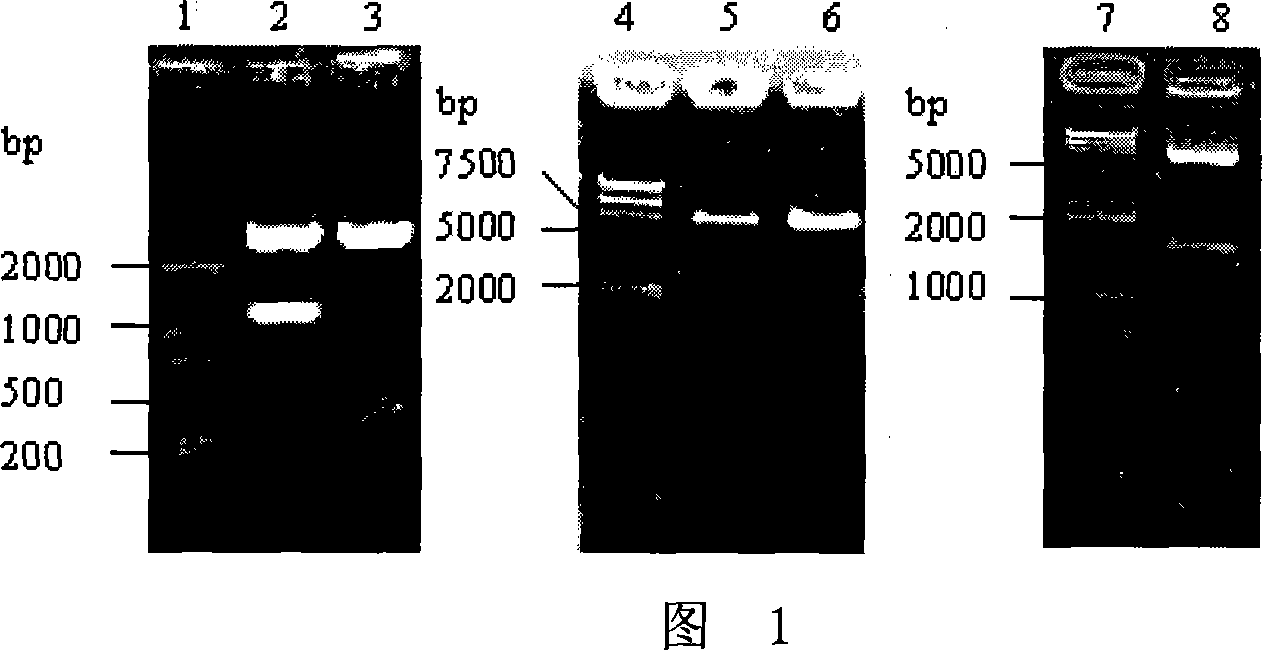
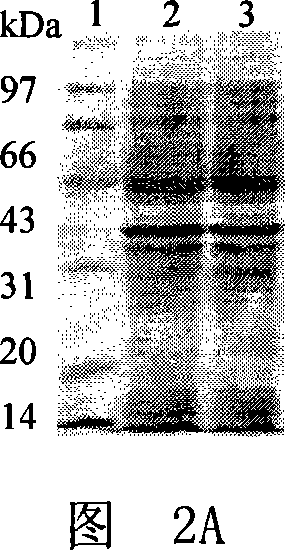
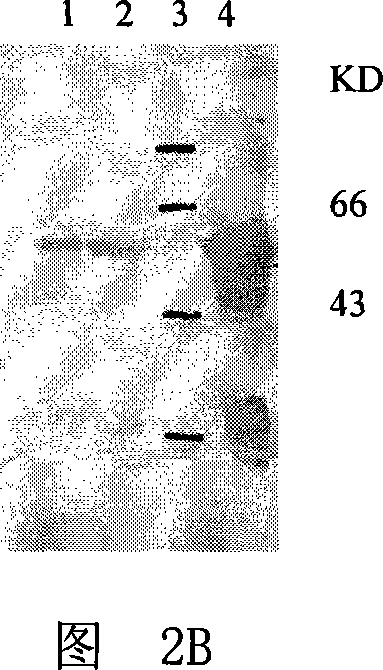



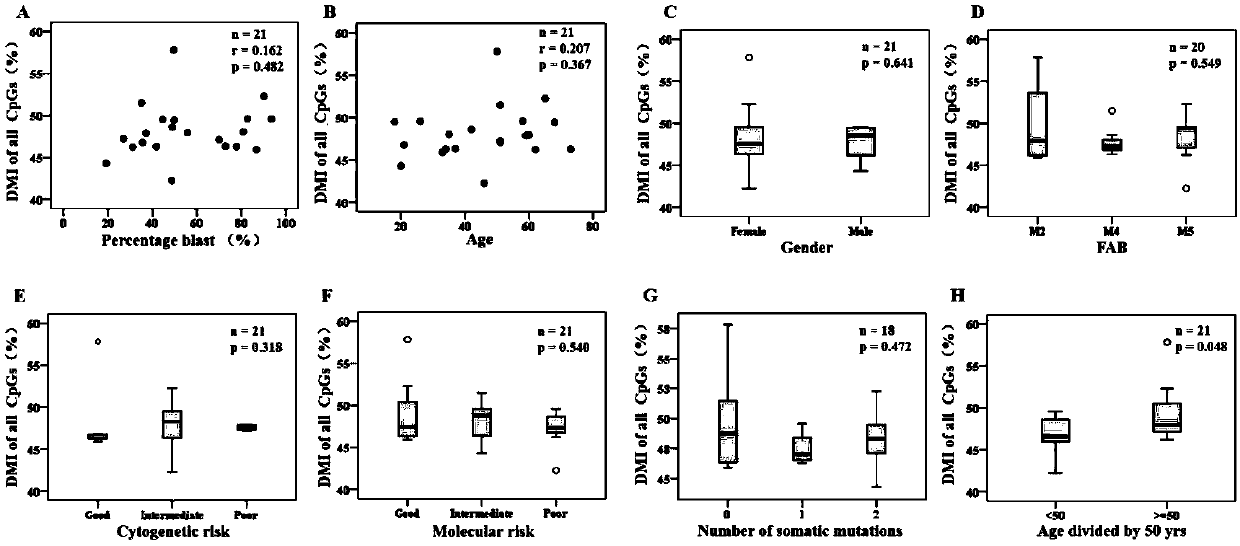
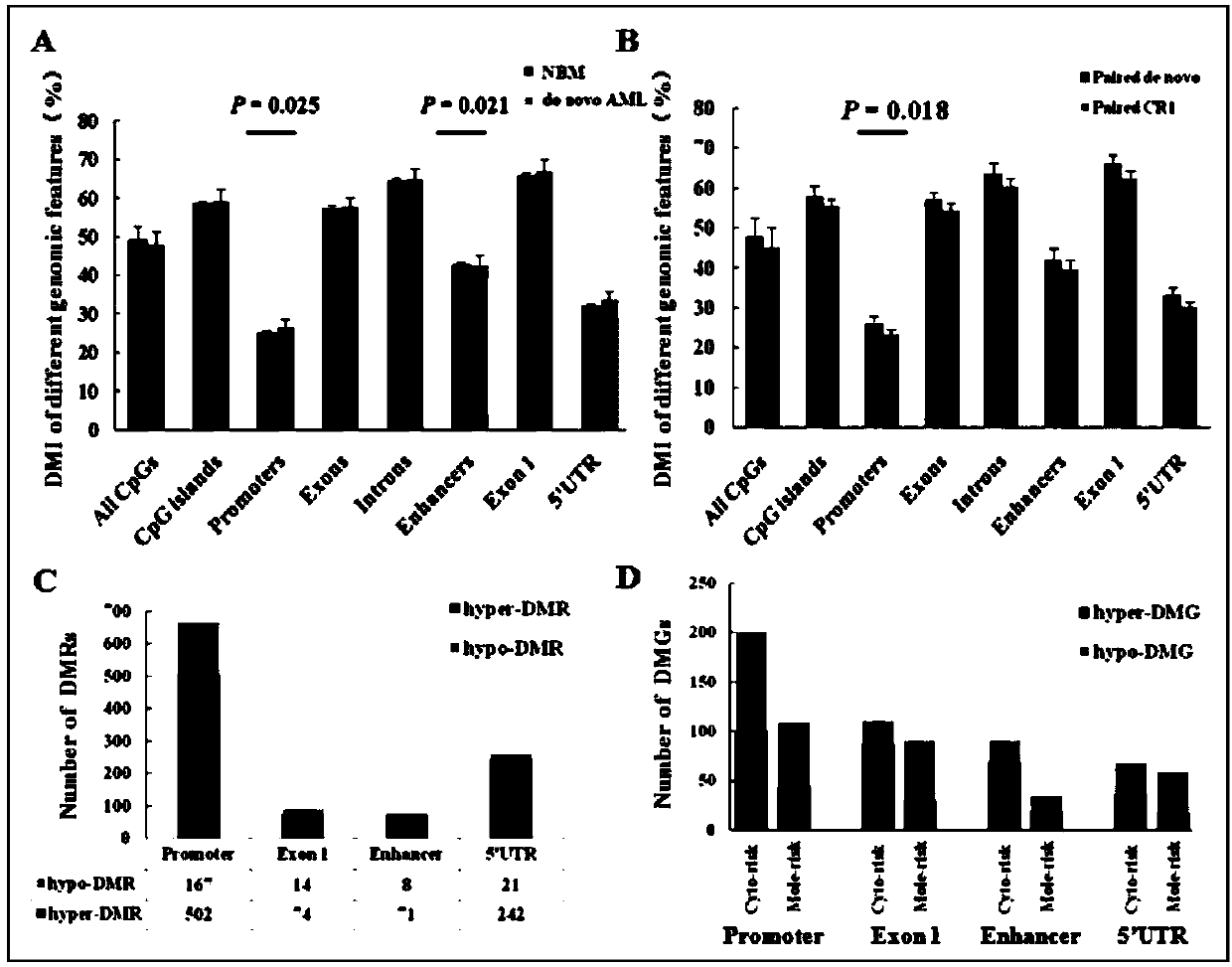
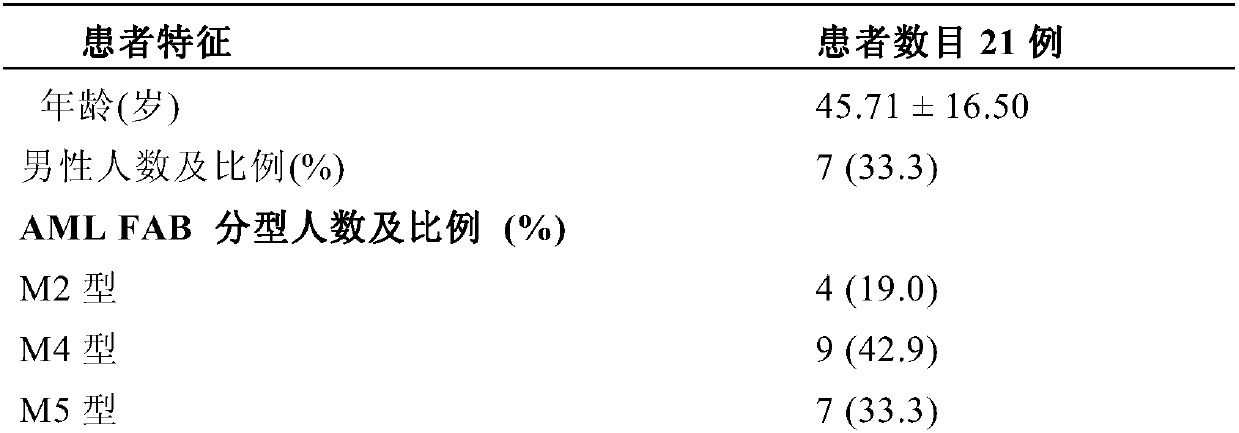



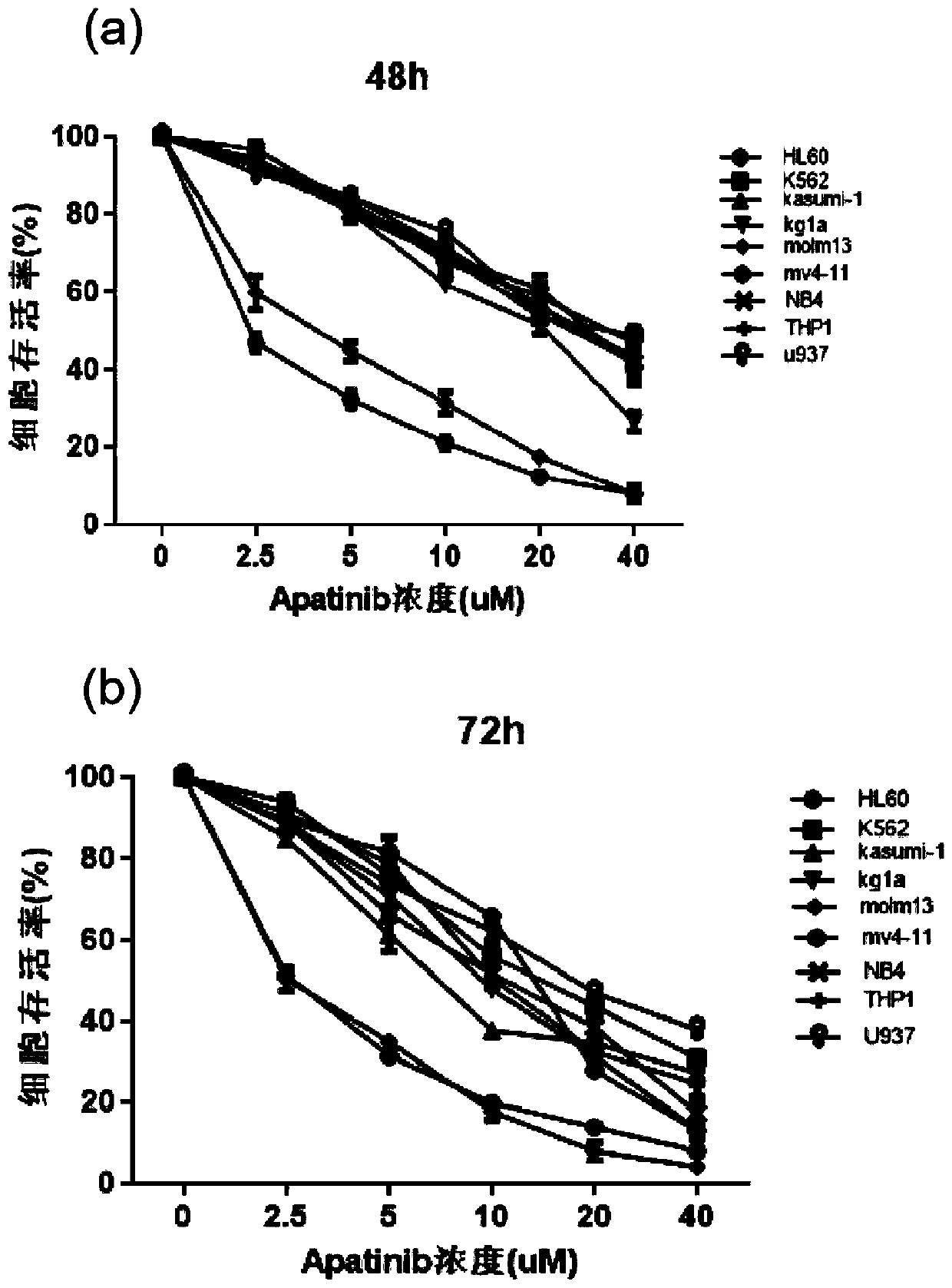


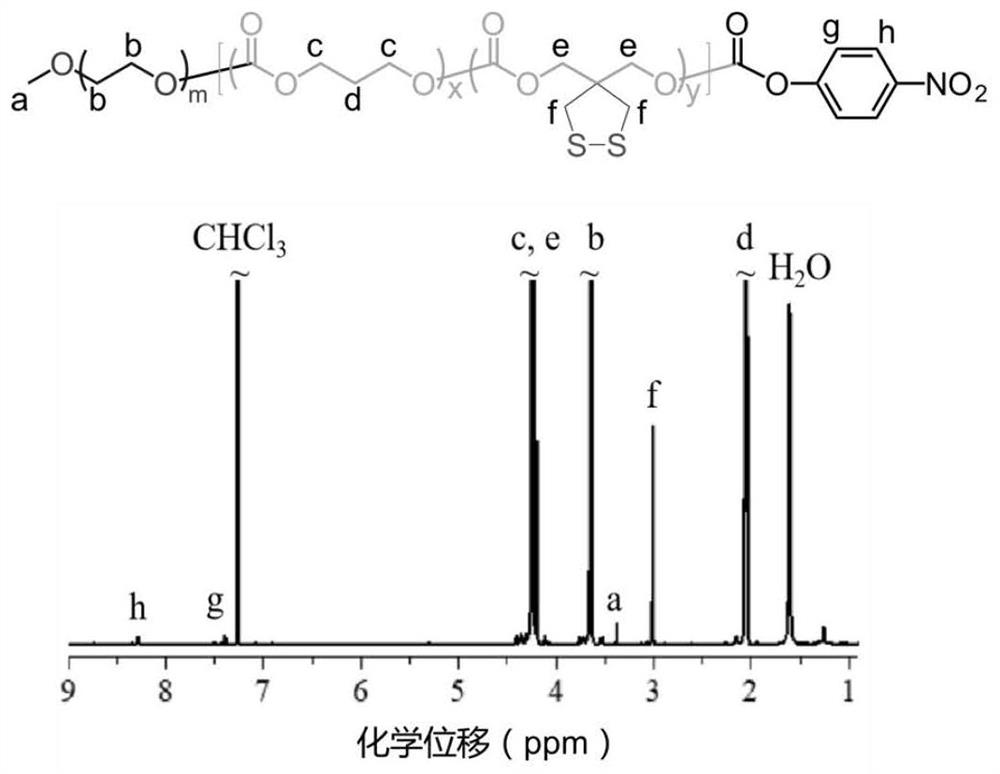


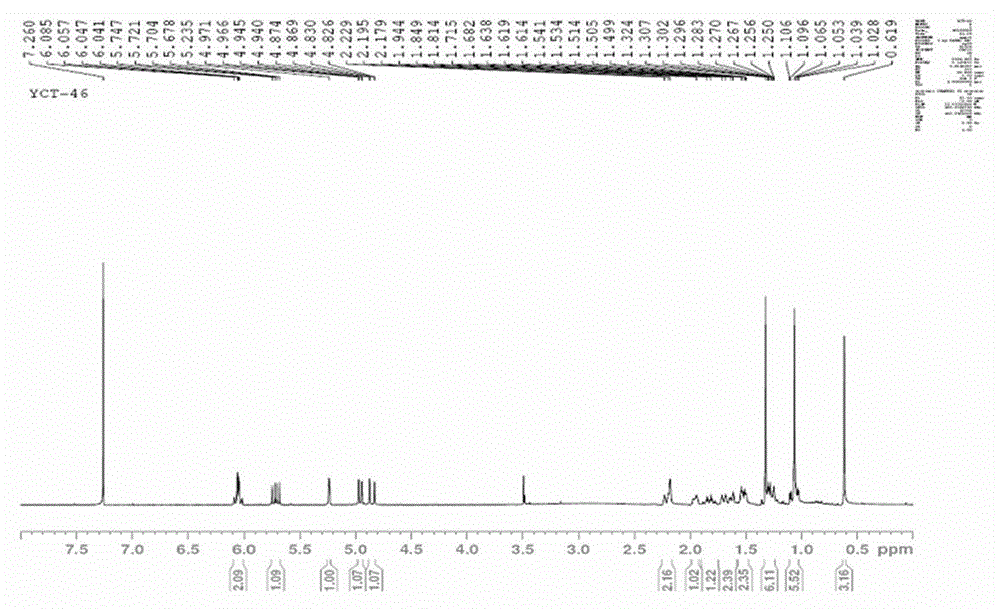
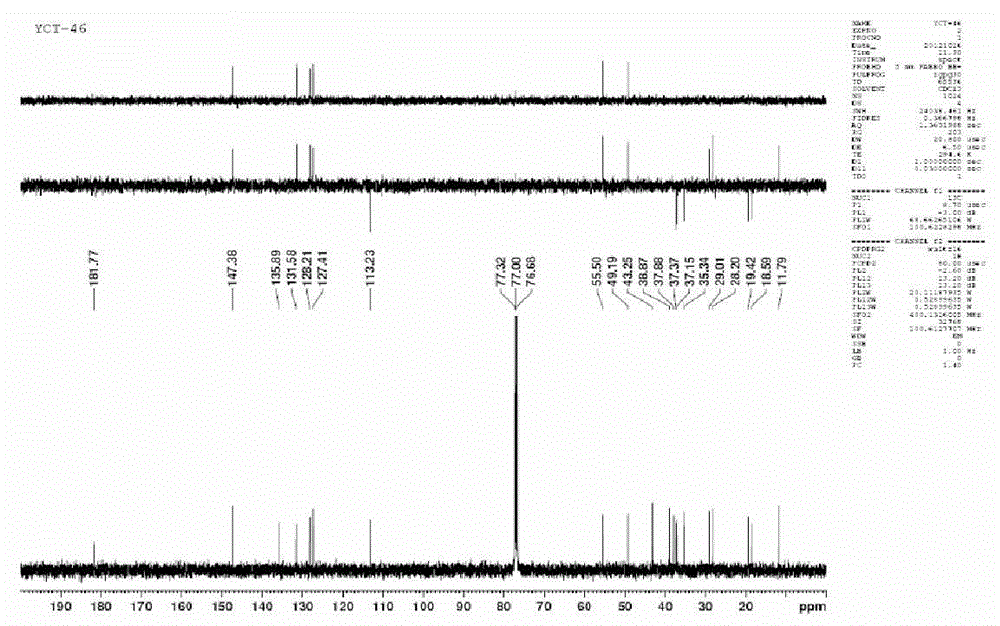
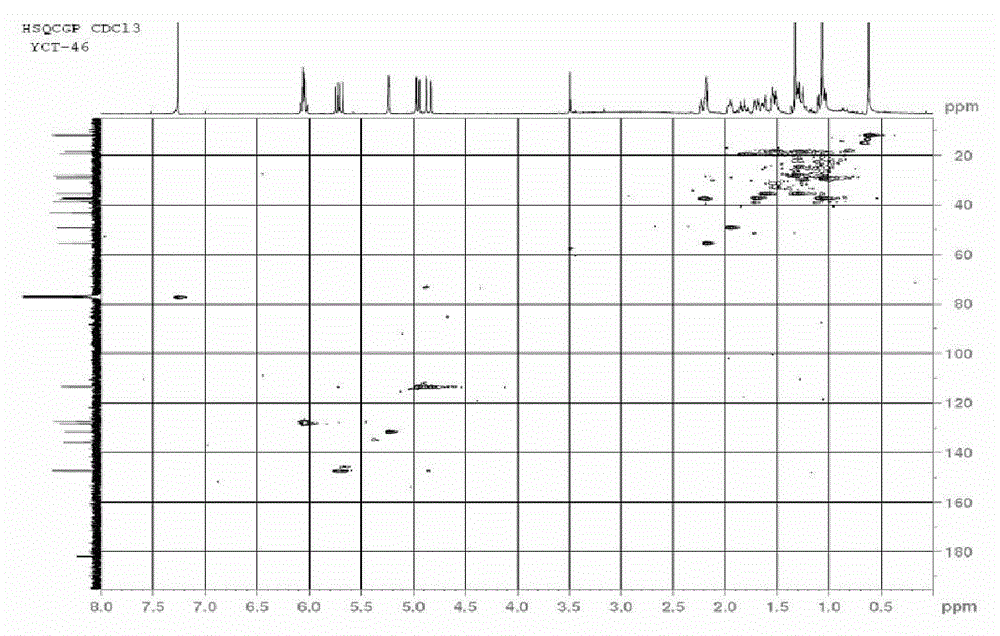
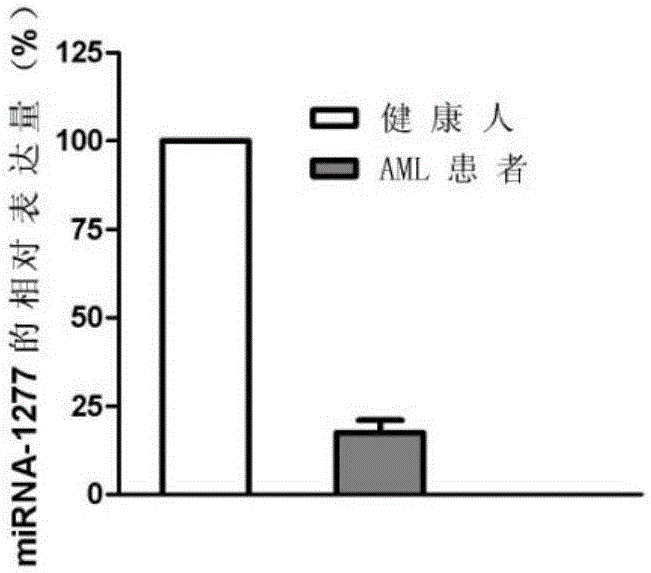


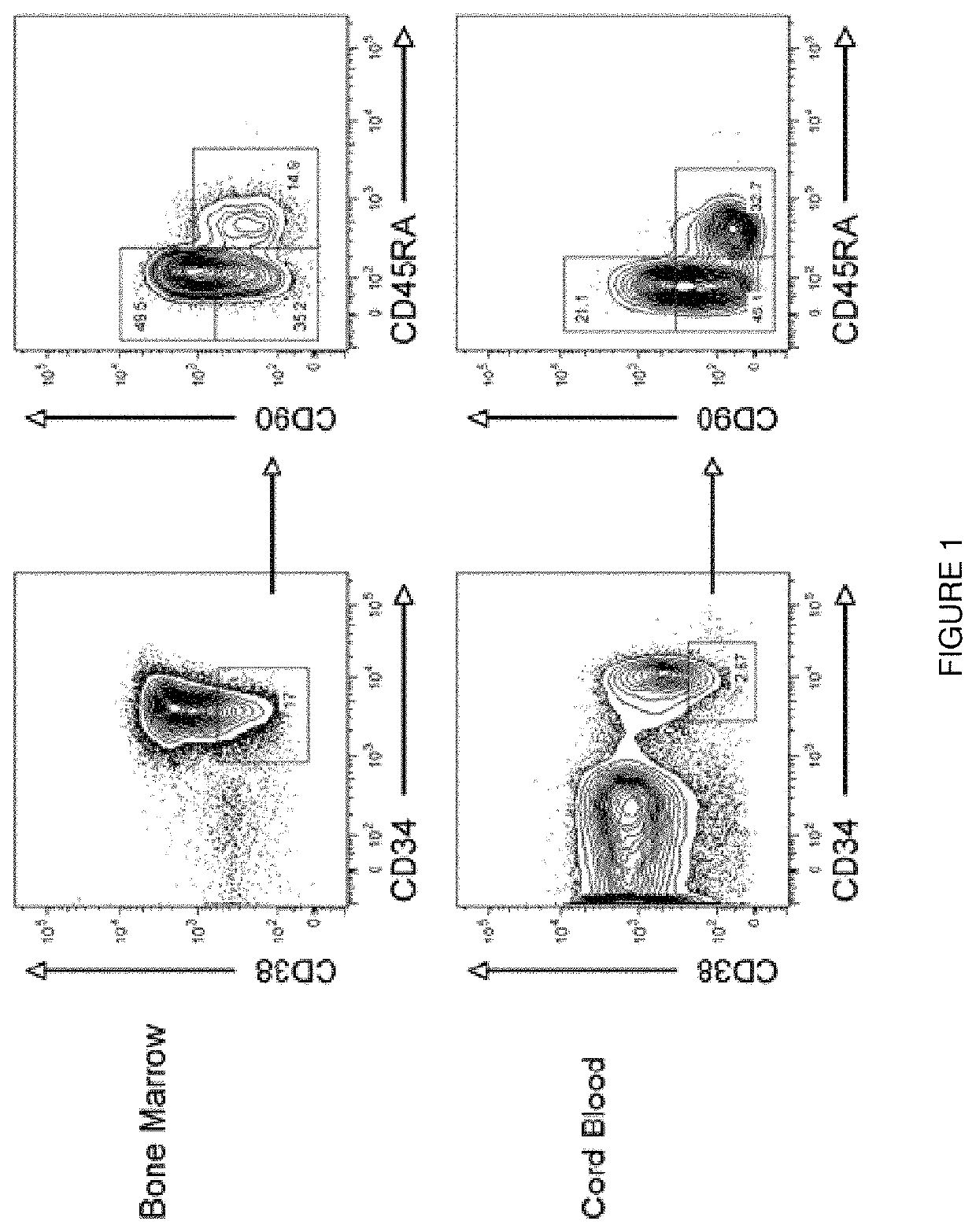


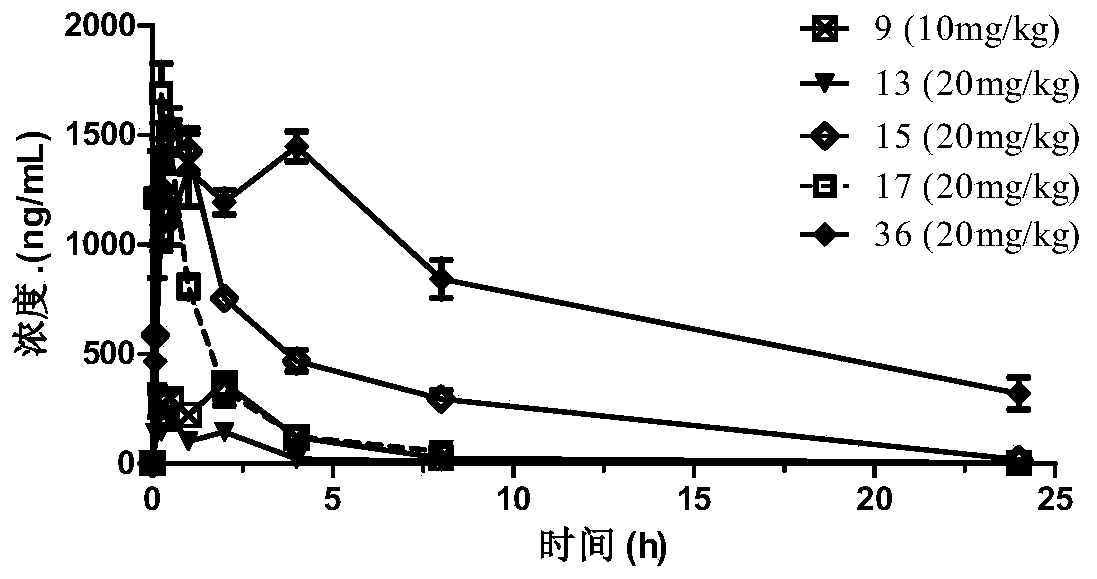
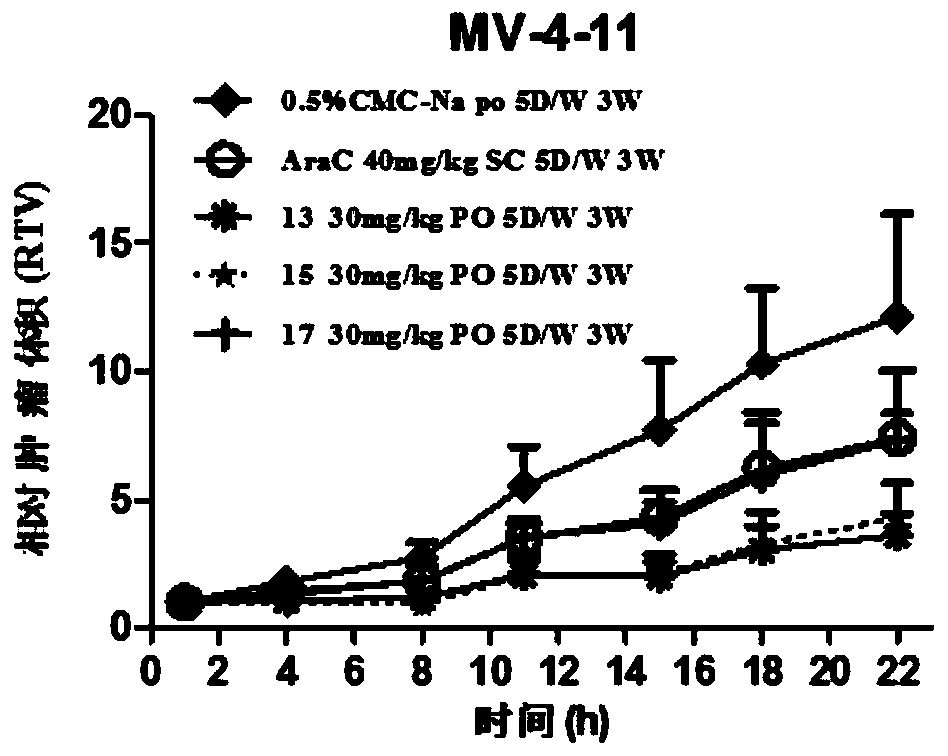

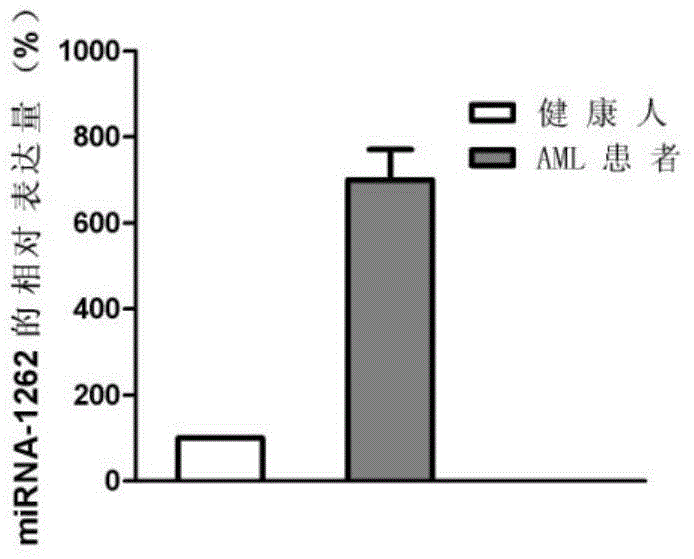

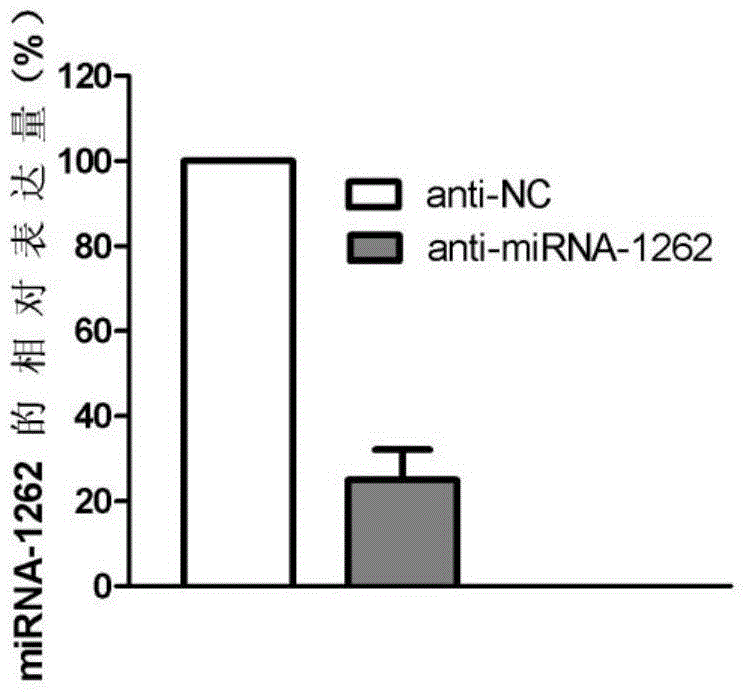


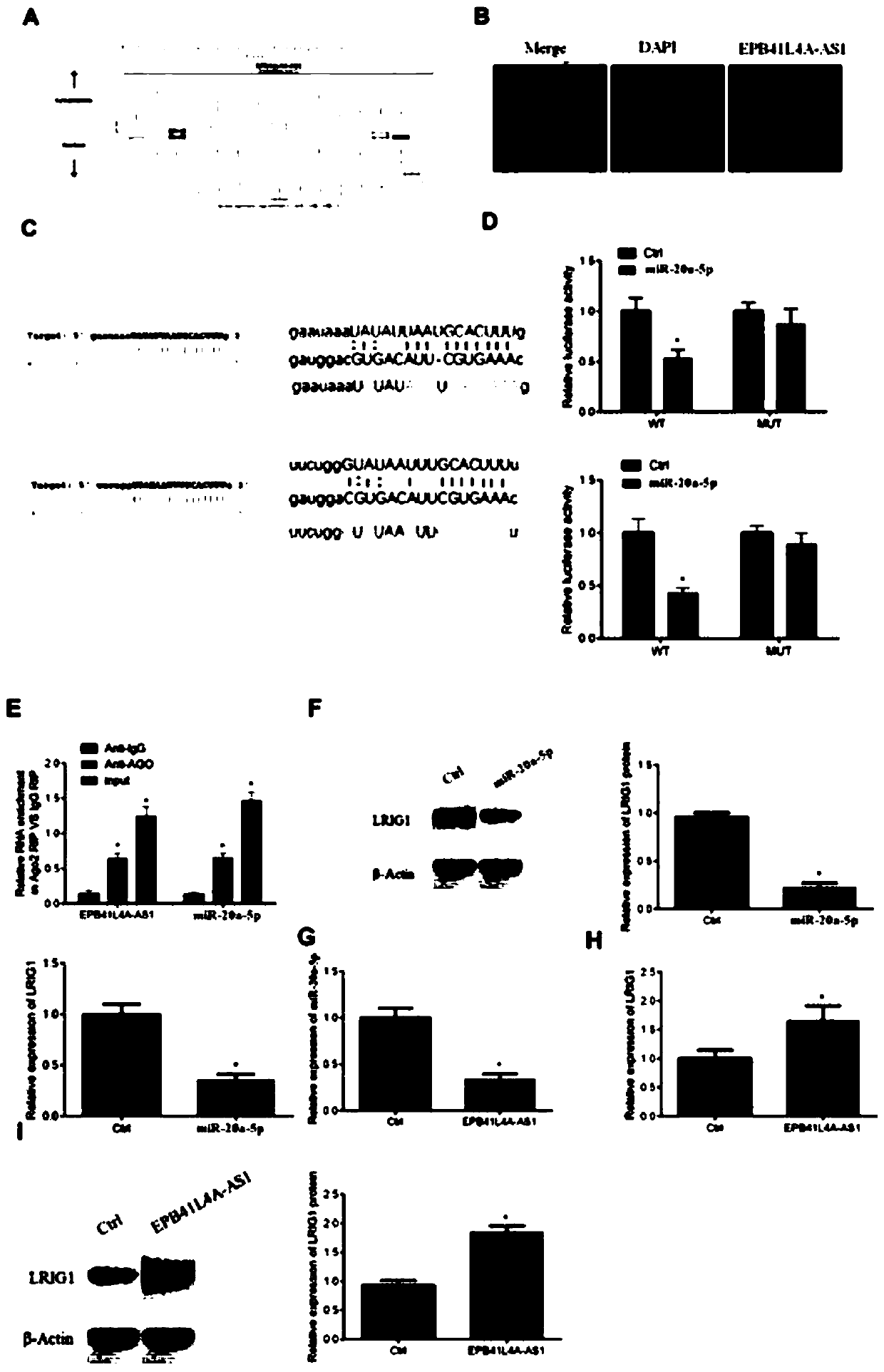
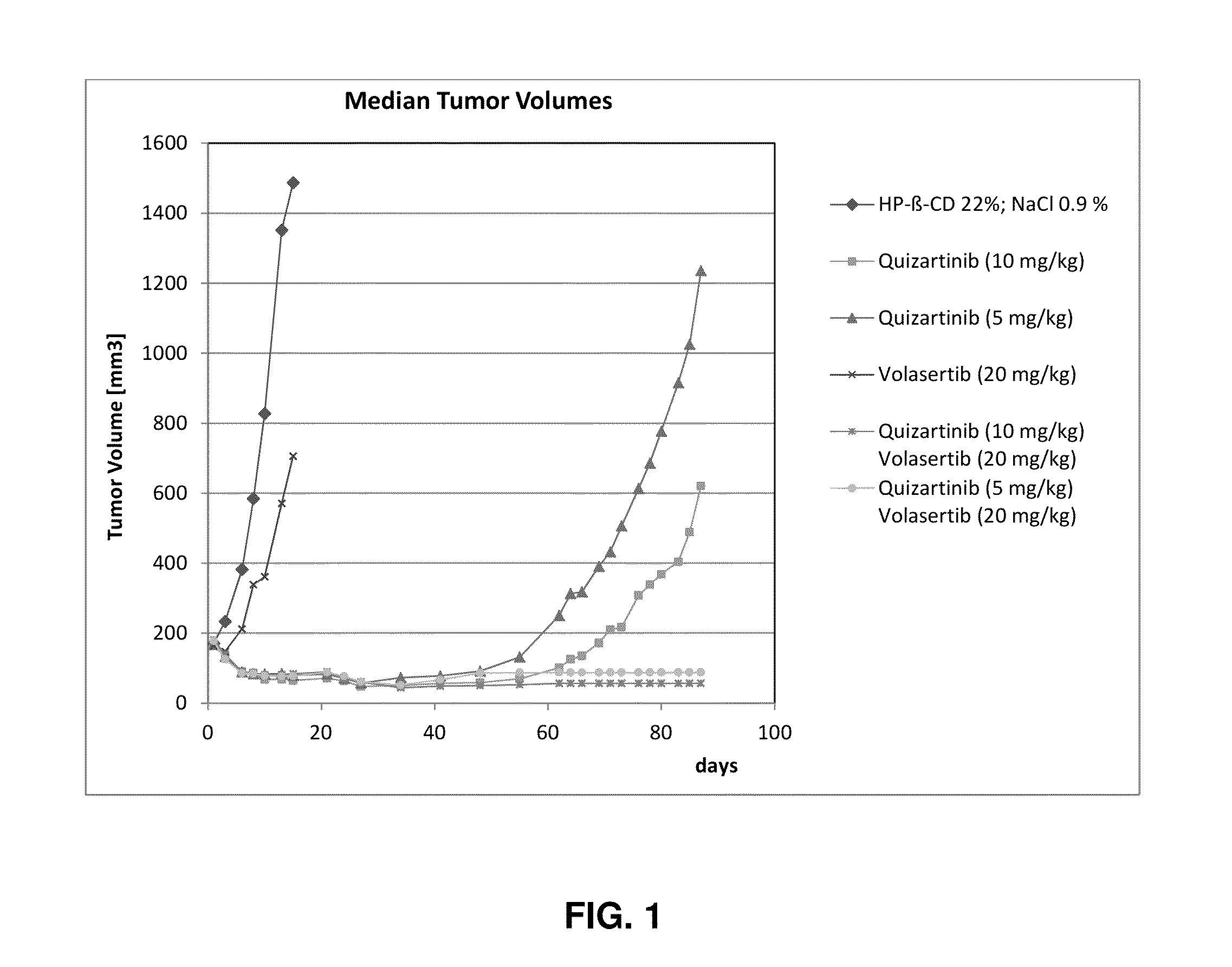
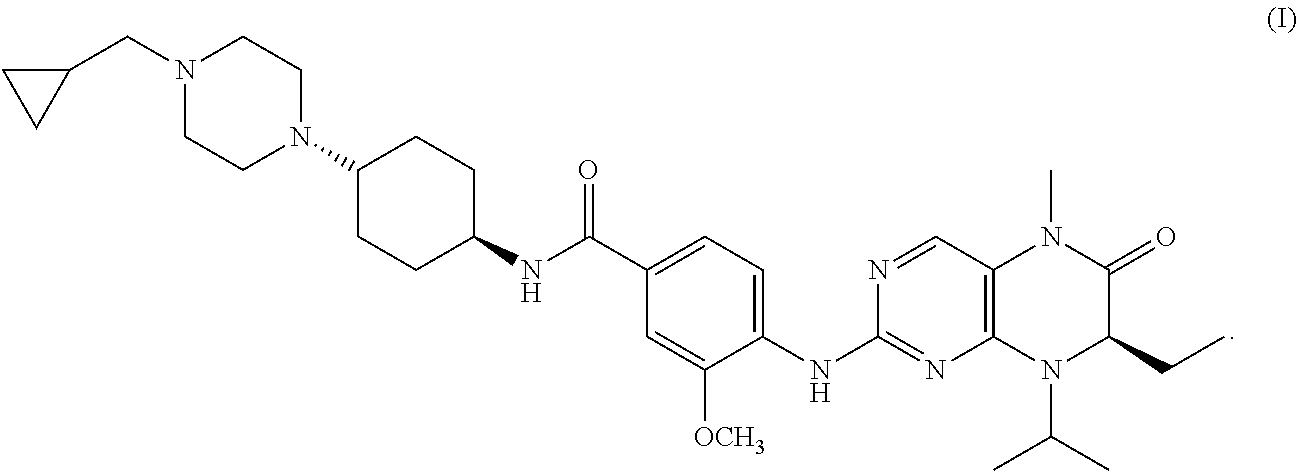

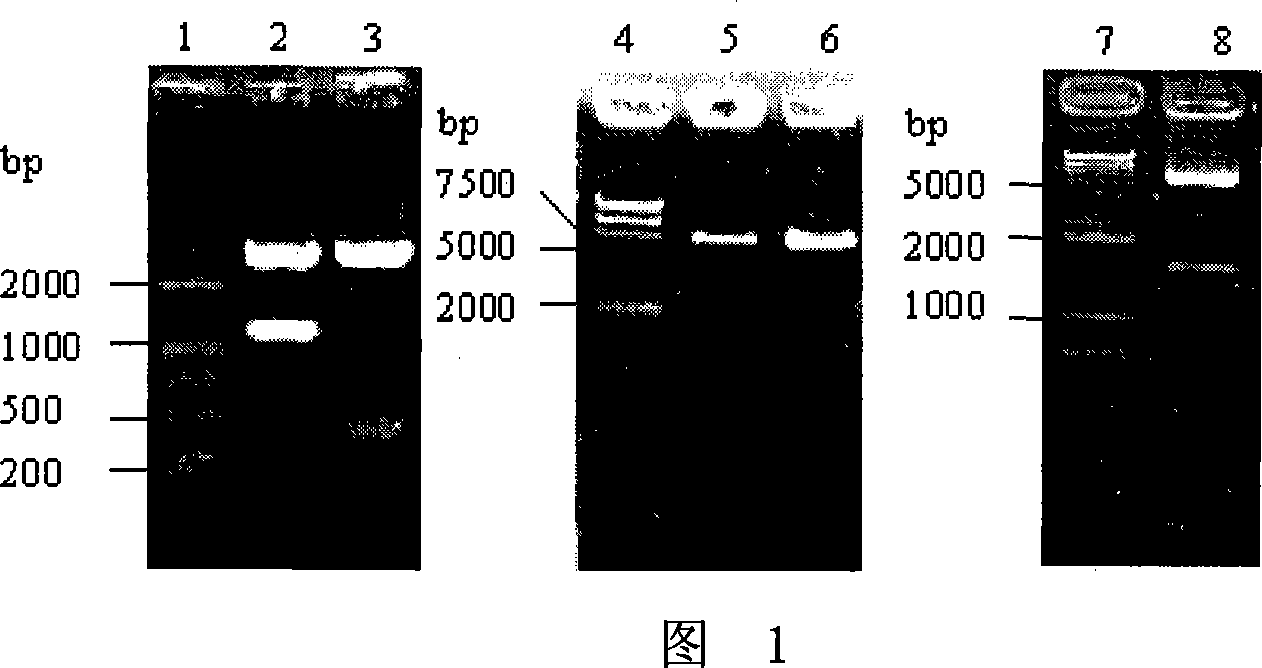
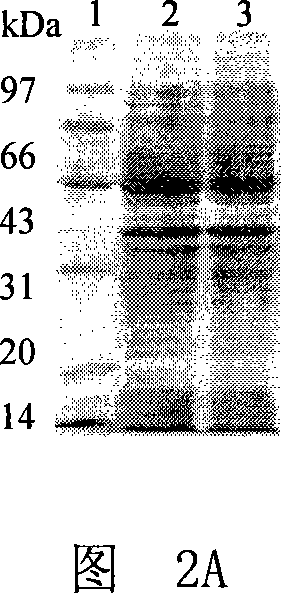


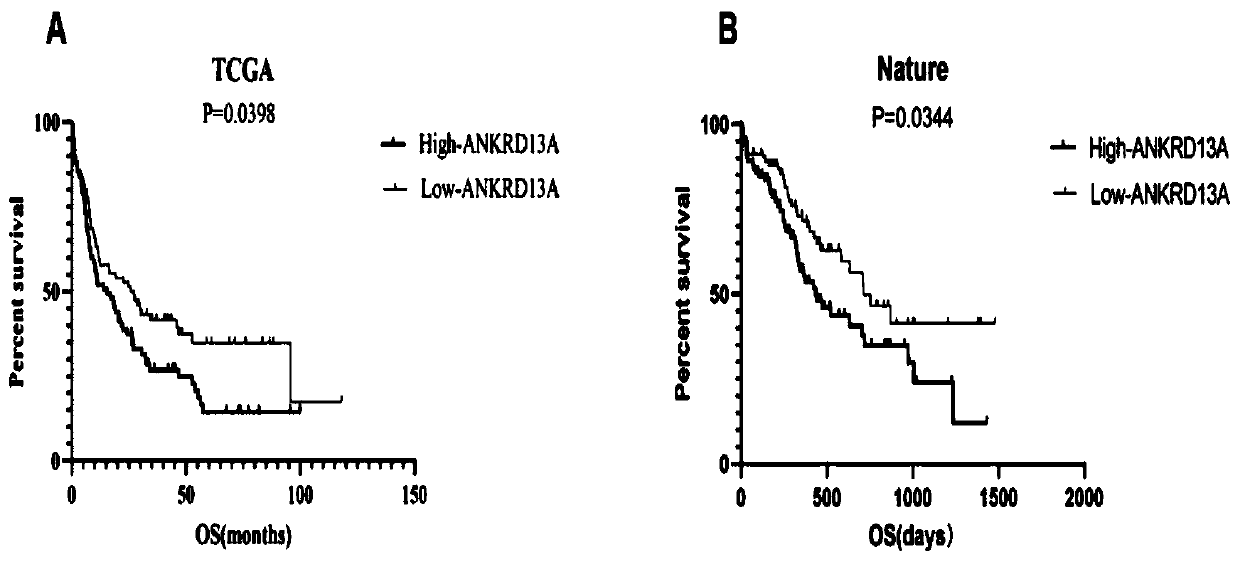
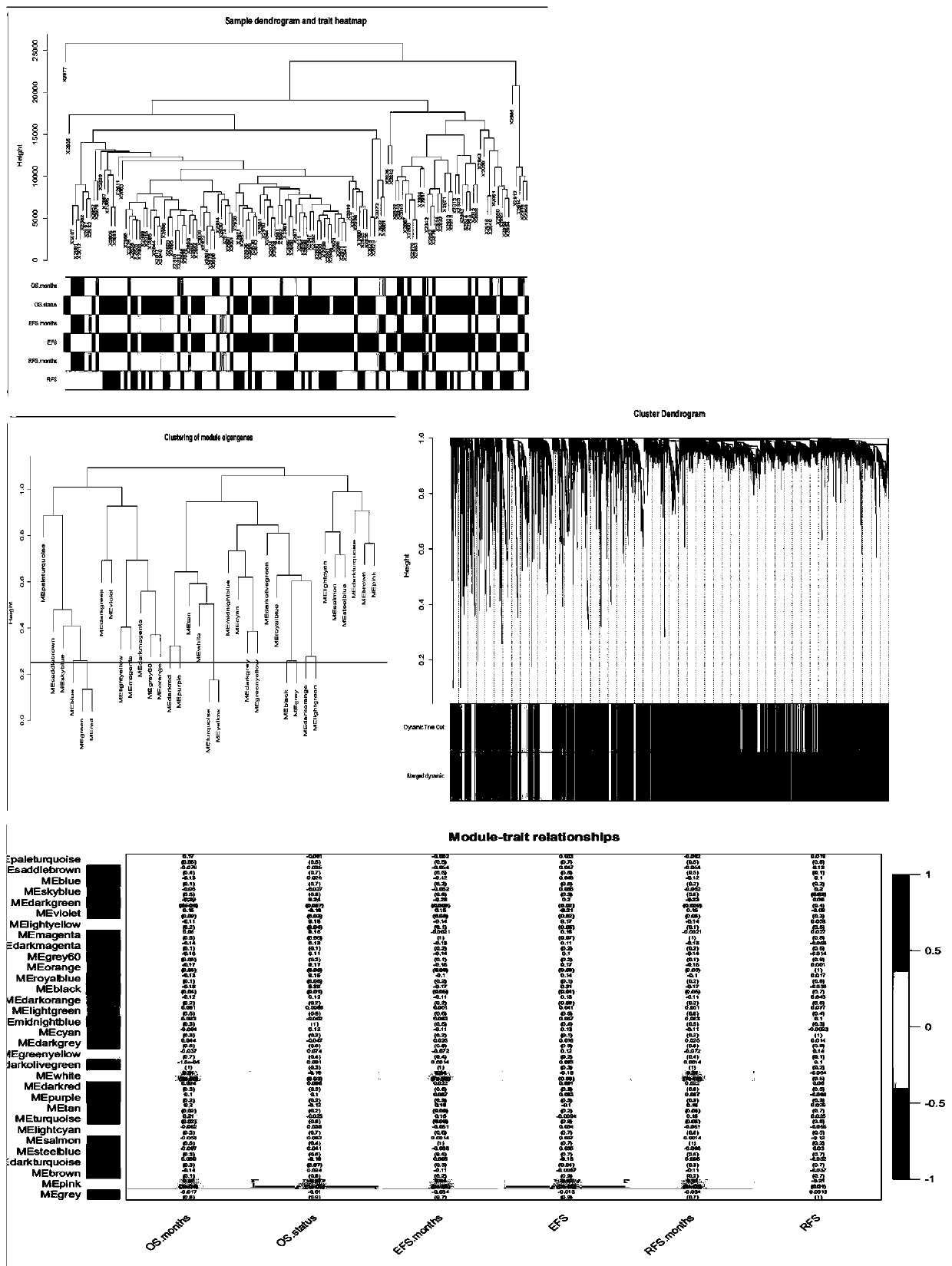

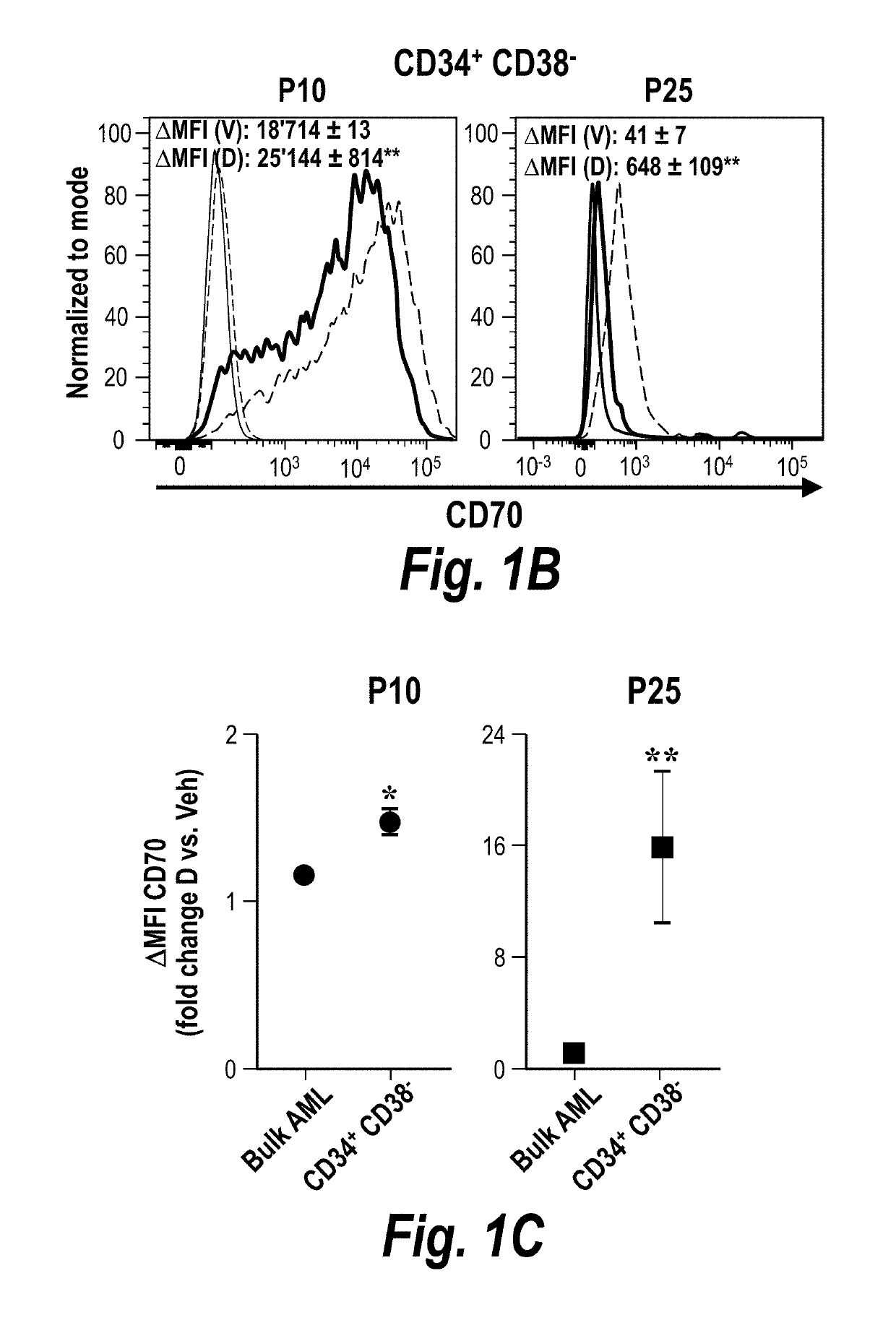
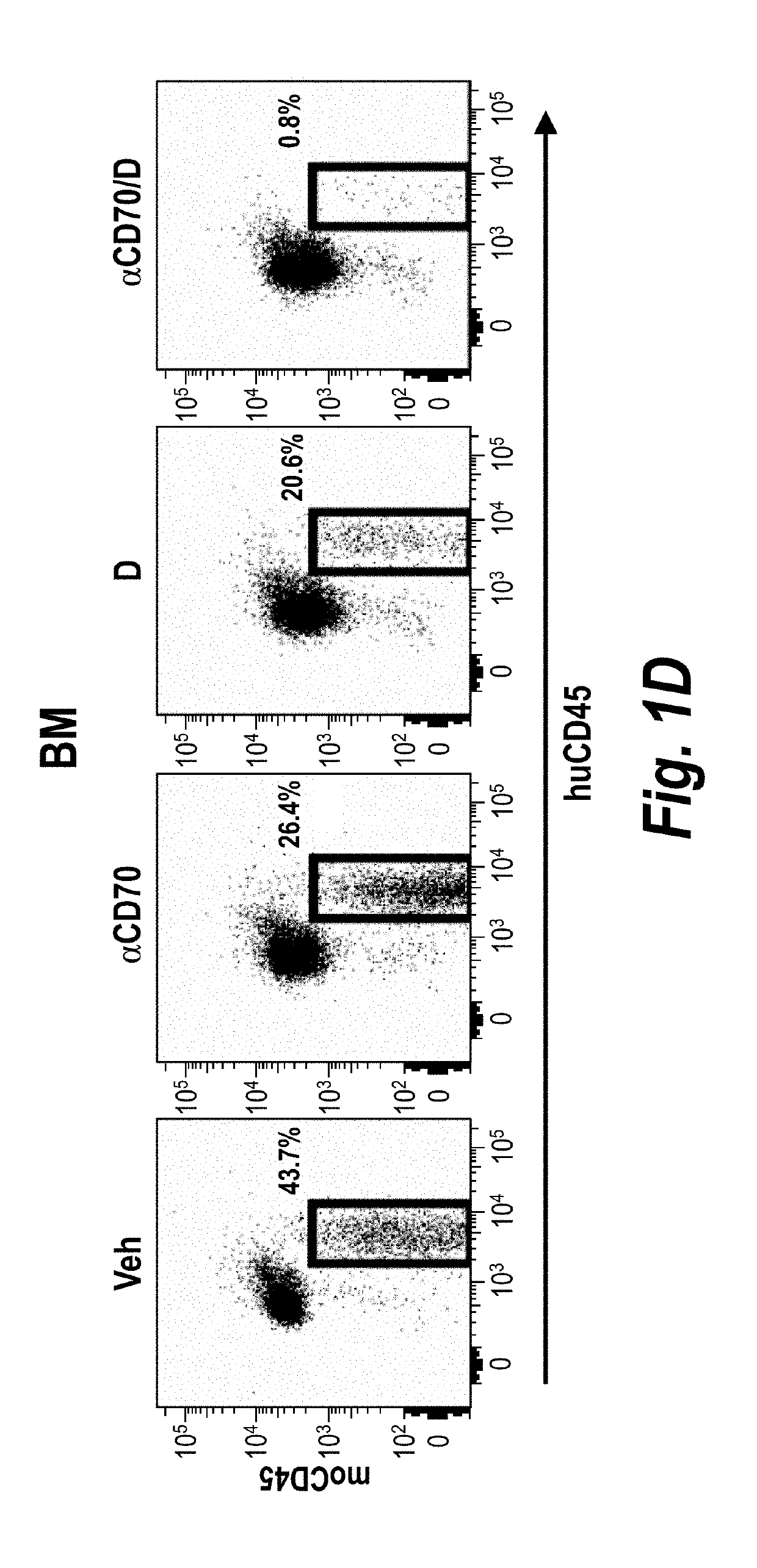
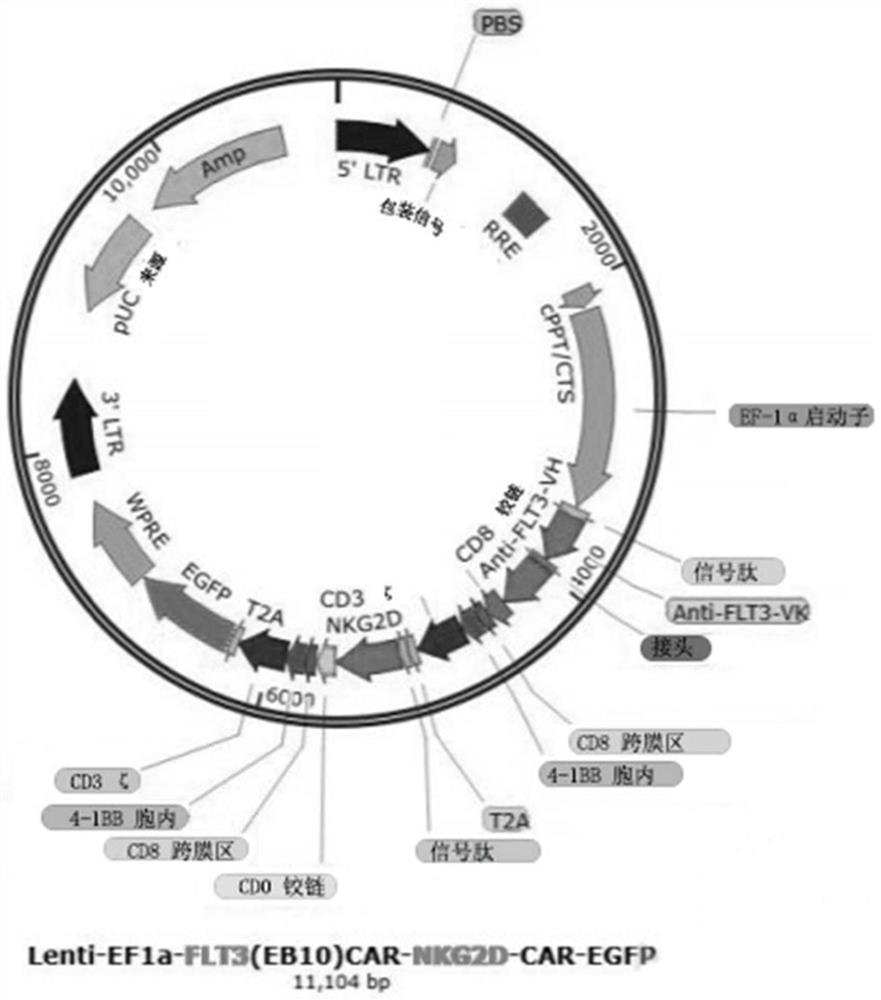
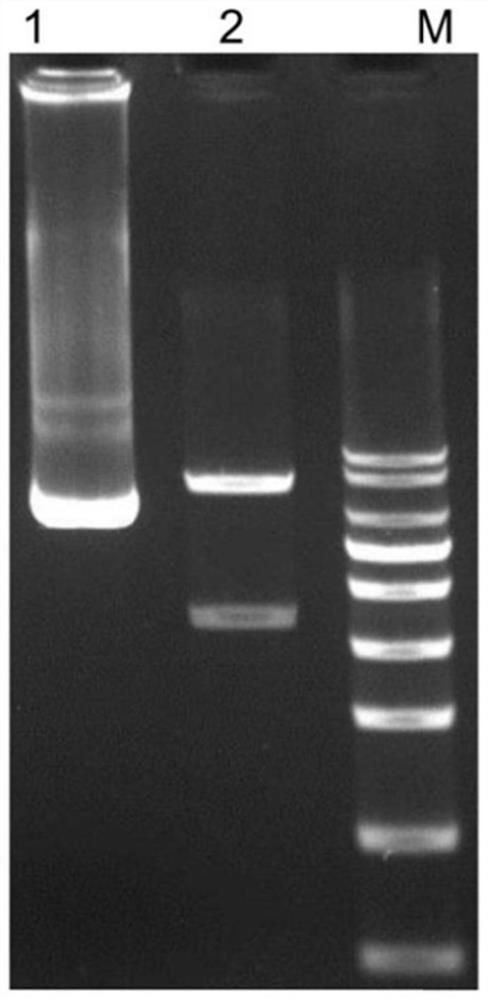
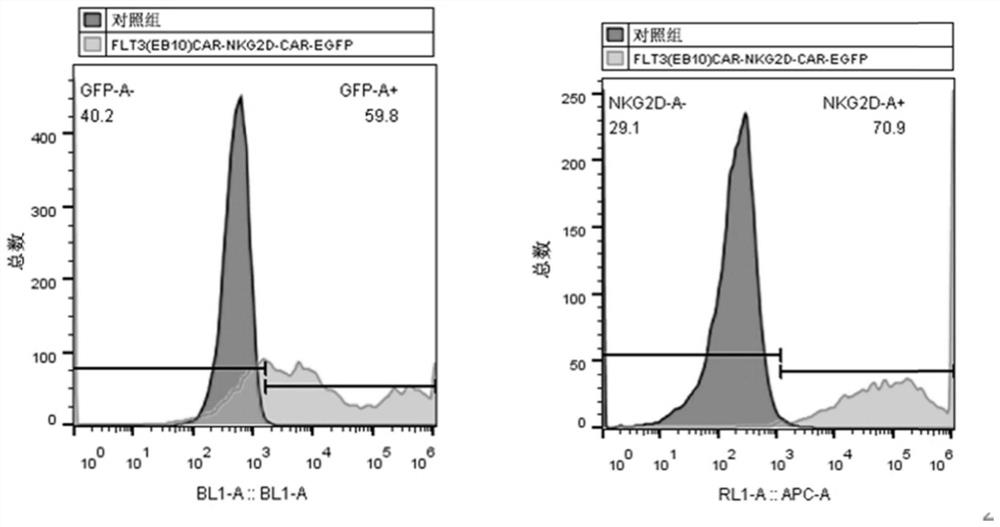
![1,1a,6,6a-tetrahydrocycloprop[a]indene-1-amine derivatives and preparation method and applications thereof 1,1a,6,6a-tetrahydrocycloprop[a]indene-1-amine derivatives and preparation method and applications thereof](https://images-eureka-patsnap-com.libproxy1.nus.edu.sg/patent_img/7cc2438f-d1c4-43c2-8082-500bb12ee49f/BDA0001414198640000021.png)
![1,1a,6,6a-tetrahydrocycloprop[a]indene-1-amine derivatives and preparation method and applications thereof 1,1a,6,6a-tetrahydrocycloprop[a]indene-1-amine derivatives and preparation method and applications thereof](https://images-eureka-patsnap-com.libproxy1.nus.edu.sg/patent_img/7cc2438f-d1c4-43c2-8082-500bb12ee49f/BDA0001414198640000022.png)
![1,1a,6,6a-tetrahydrocycloprop[a]indene-1-amine derivatives and preparation method and applications thereof 1,1a,6,6a-tetrahydrocycloprop[a]indene-1-amine derivatives and preparation method and applications thereof](https://images-eureka-patsnap-com.libproxy1.nus.edu.sg/patent_img/7cc2438f-d1c4-43c2-8082-500bb12ee49f/BDA0001414198640000051.png)


